THE ECO ANNUAL REPORT
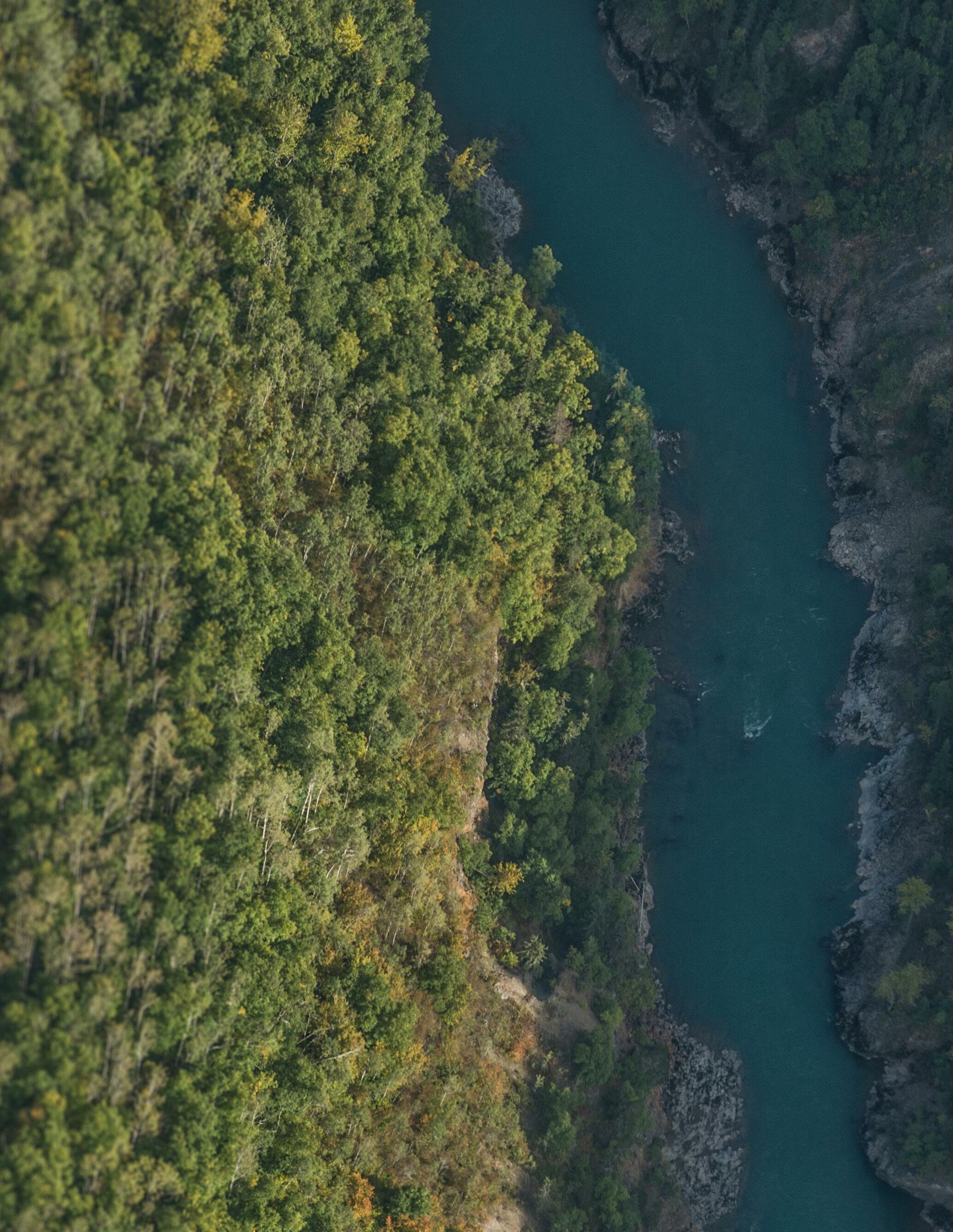
FY’21-22
is past Earth Day, the throngs of students, sta , faculty, and neighbors rushing through the Georgetown campus were greeted with something a little unusual. A man—Rodney Stotts of Washington, D.C.—sat with a Harris’ Hawk (Parabuteo unicinctus; pictured right) perched on his arm and a Eurasian Eagle Owl (Bubo bubo) at the ready nearby. As the master falconer demonstrated how to handle the raptor, he re ected on his journey through the criminal justice system to nature, using birds to inspire others in the community to reconnect with the self, the environment, and each other.
I feel this phenomenon of ecological belonging saved me, too. It showed me a path of inquiry, contemplation, and wonder. I believe the more we can create and nurture a generation of leaders who act for the environment and for each other, the more hopeful and optimistic we should be about our future.

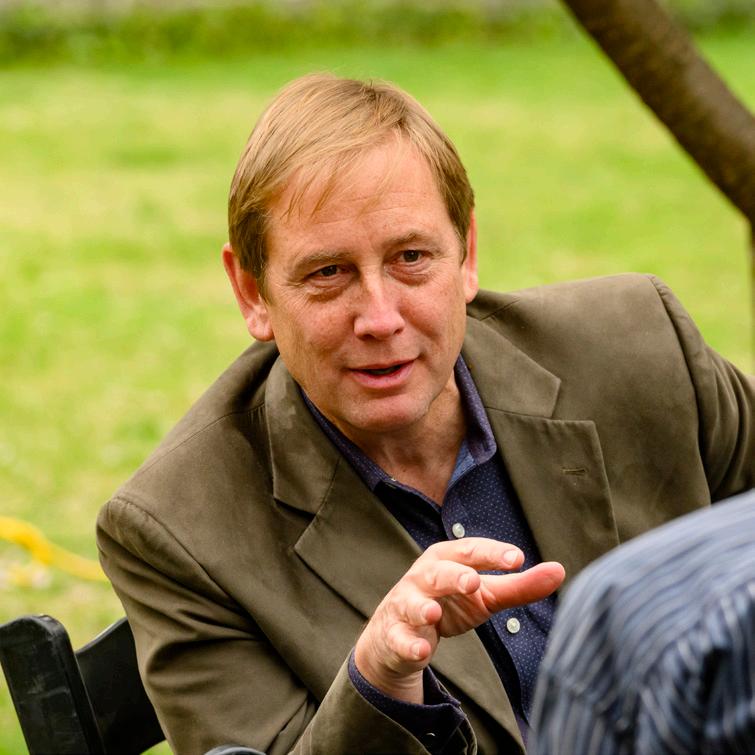

I am con dent in Georgetown University’s ability to lead this charge through transformative education, research, and action for environment and sustainability. It is my honor to share the work of the Earth Commons (ECo)—Georgetown’s Institute for Environment and Sustainability—and the story of our launch this past year in our rst-ever ECo Annual Report, from co-creating a new master’s program with the McDonough School of Business and Graduate School of Arts & Sciences and recruiting the brightest minds in academia, to seeding environment and sustainability innovations here on campus, to supporting a vibrant arts community and launching our signature magazine.
I am forever grateful to the community that has gathered around this e ort to—as Pope Francis writes in the Laudato Si’—”Care for Our Common Home,” on campus and globally. Despite the great challenges we face in our time, I see a future where we can learn, grow, and thrive together. It’s already begun.
“
Despite the great challenges we face in our time, I see a future where we can learn, grow, and thrive together.
Peter P. Marra, Ph.D. Director, e Earth Commons
2 e ECo Annual Report
“Sources and Sinks” by Alisa Singer from the ECo Artwalk
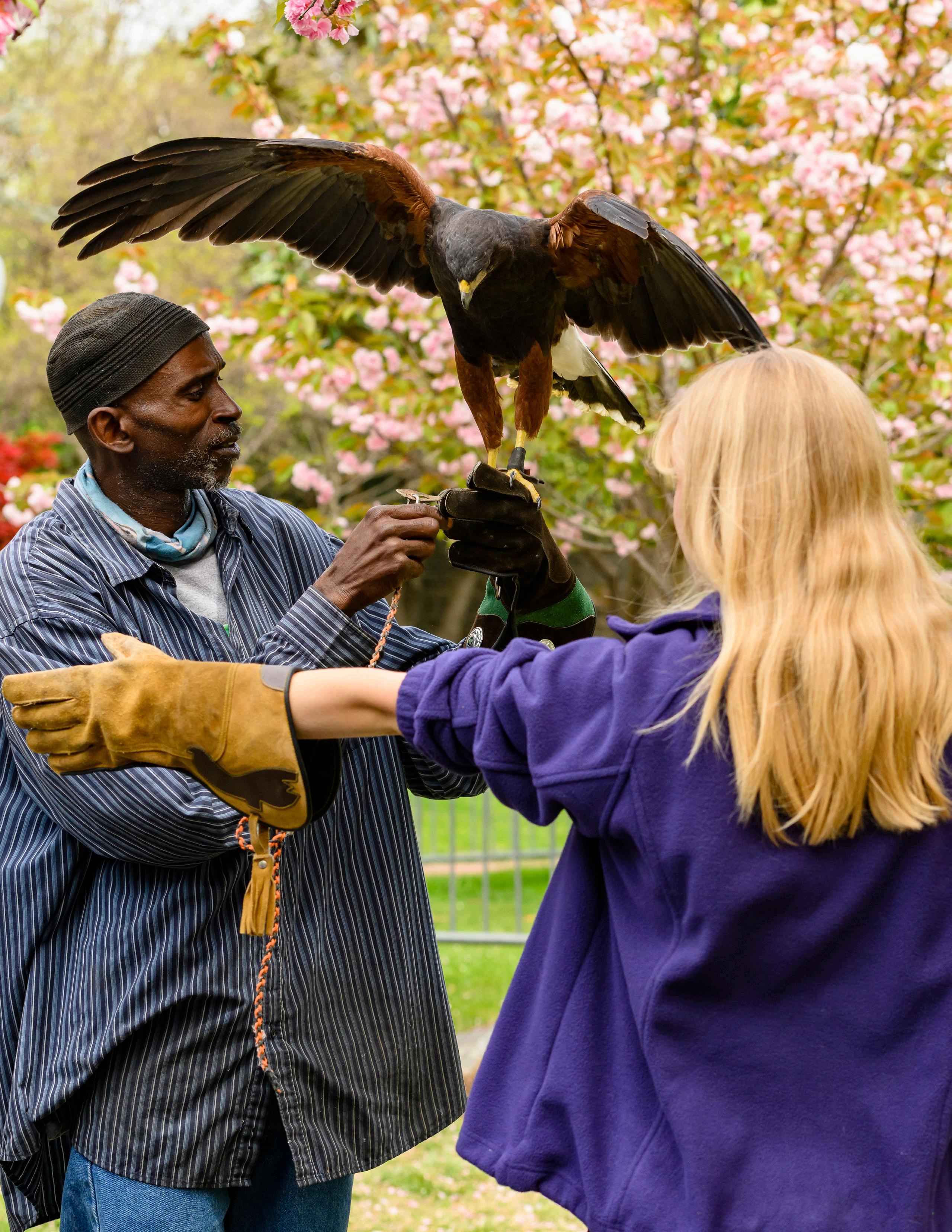 Rodney Stotts demonstrates how to handle the Harris’ Hawk at the Earth Commons’ Voices for the Environment Event in April, 2022.
Rodney Stotts demonstrates how to handle the Harris’ Hawk at the Earth Commons’ Voices for the Environment Event in April, 2022.
3 e ECo Annual Report
Cover photo: Tim Romano.
WHO WE ARE
Mission e Earth Commons is shaping the future of our planet by building, supporting, and infusing environmental and sustainability research, education and action throughout the Georgetown University community and beyond.
Vision e Earth Commons will catalyze solutions to the world’s most urgent environmental and sustainability challenges as an internationallyrecognized institute for innovative education, groundbreaking research and transformative action—on Georgetown’s campus, in our community and around the globe.
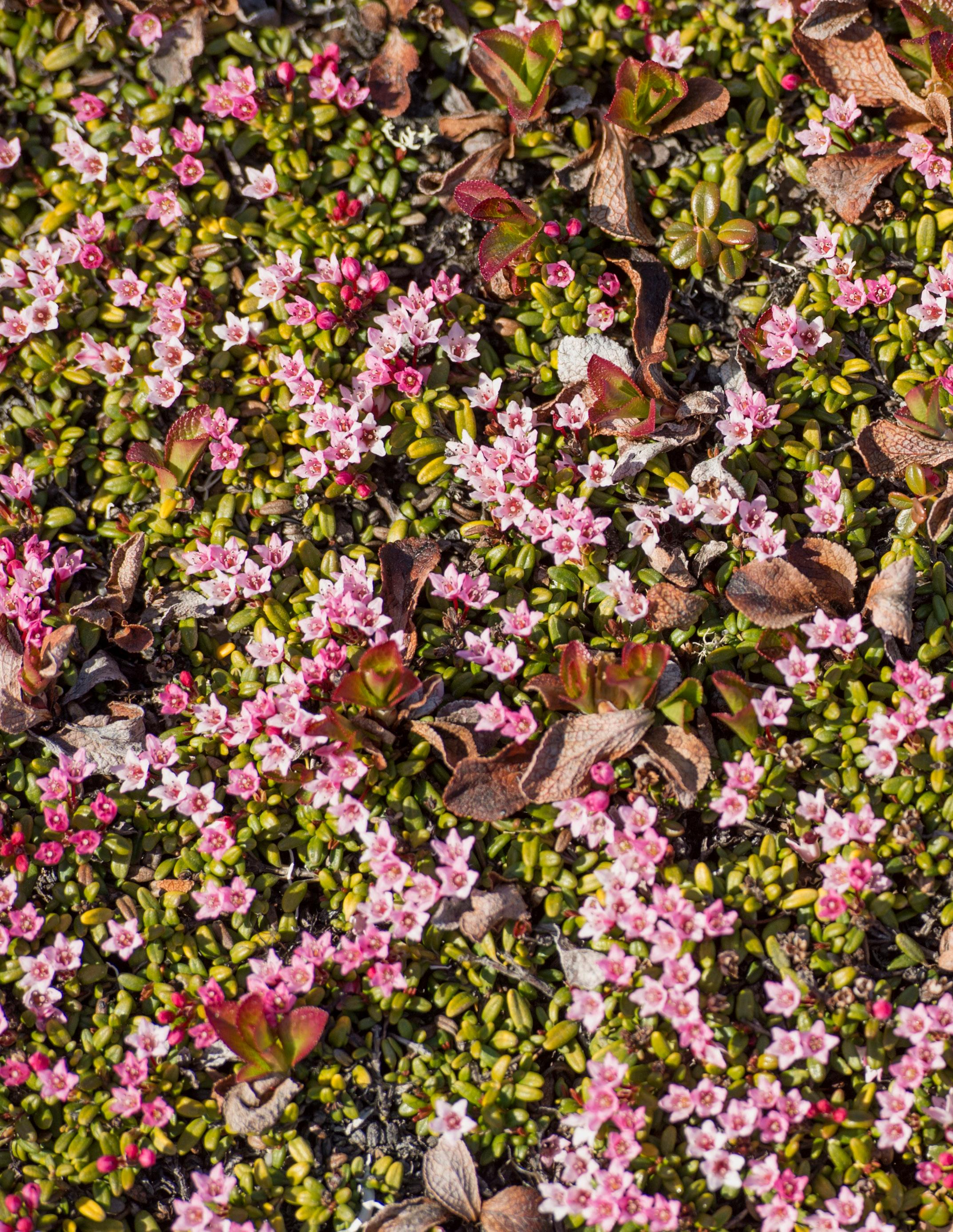 Georgetown’s Earth Commons Institute is a hub for environmental and sustainability innovation, research and education to accelerate action on the most pressing issues of our earth.
Georgetown’s Earth Commons Institute is a hub for environmental and sustainability innovation, research and education to accelerate action on the most pressing issues of our earth.
4 e ECo Annual Report
WHAT WE DO
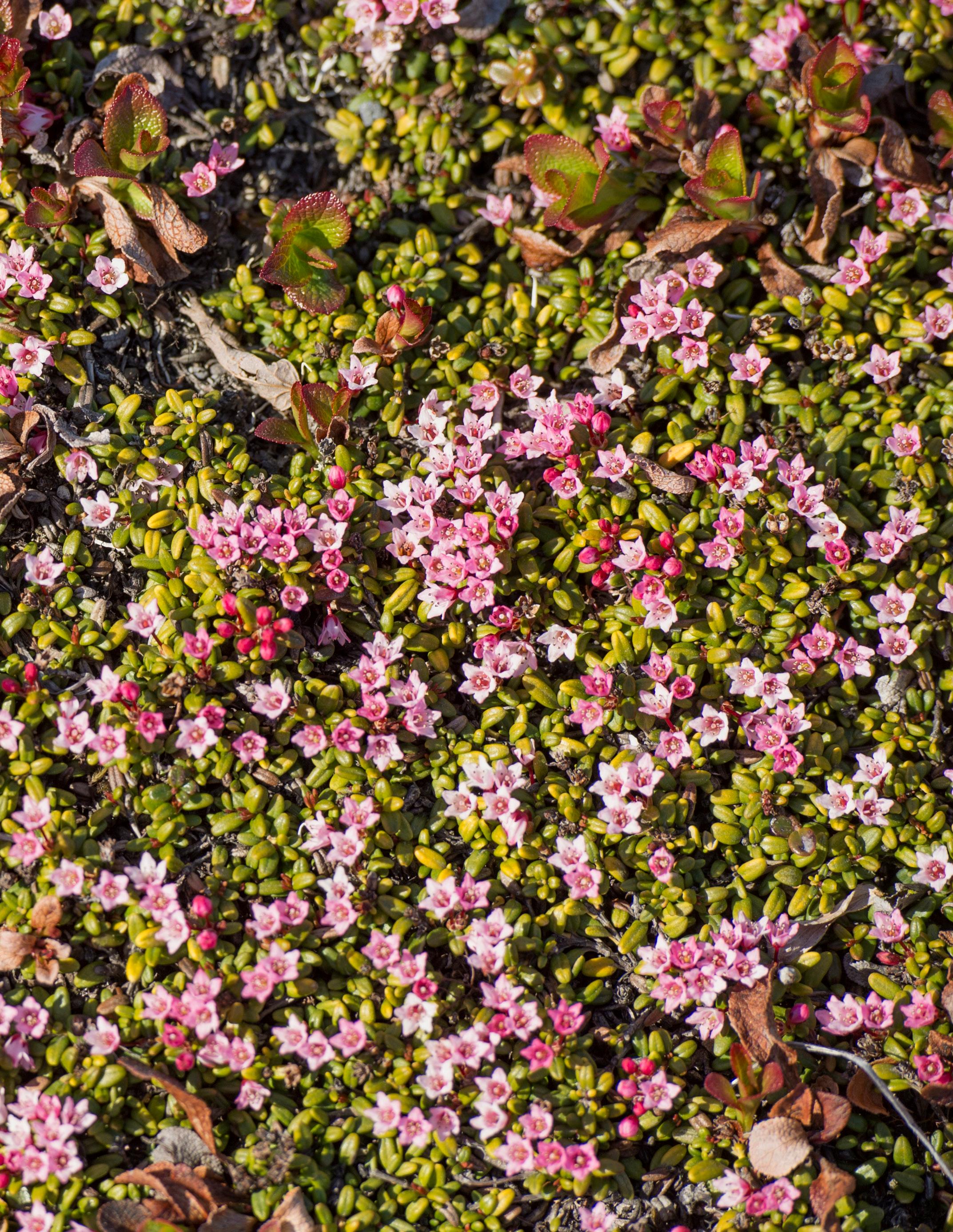
We assemble diverse, interdisciplinary teams of faculty, external experts and students to collaborate on the world’s greatest environmental and sustainability challenges and turn research into action for the common good. Solutions We are transforming Georgetown’s campus into a living laboratory where we develop urgently-needed, scalable solutions to green the campus and broader community—and shape the future of our planet. Access Our D.C. location and strong partnerships across industries, policymakers, government and environmental leaders give Georgetown’s environmental stewards access to global leaders and opportunities to impact a greener world. Leadership We educate, empower and network diverse leaders across disciplines to lead environmental reform and impact environmental sustainability measures for the common good.
Collaboration
5 e ECo Annual Report
An Alaskan tundra landscape. Tim Romano courtesy of the Smithsonian Institution.
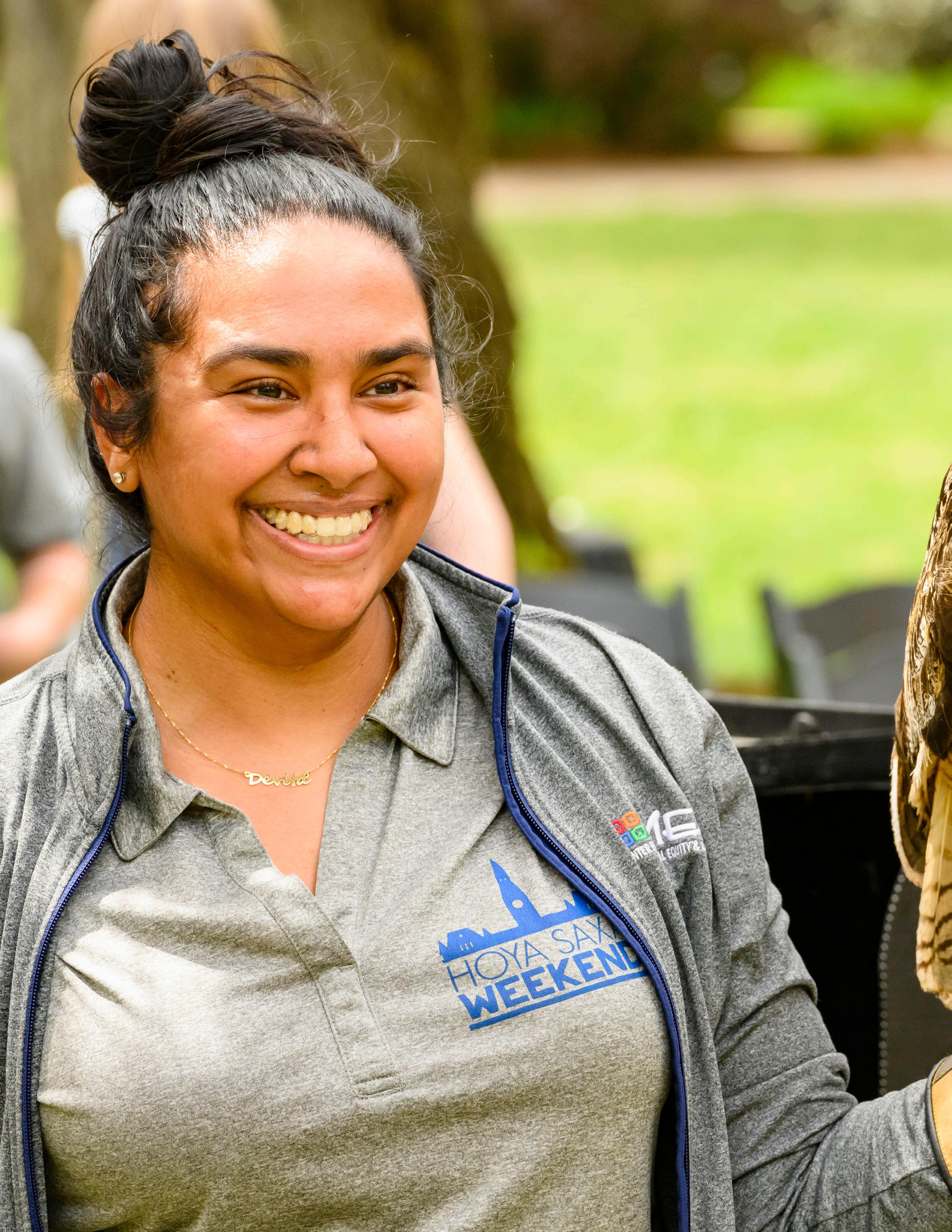
6 e ECo Annual Report
A student learns how to handle the Eurasian eagle-owl at the Earth Commons’ Voices for the Environment Event in April, 2022
Goal 1
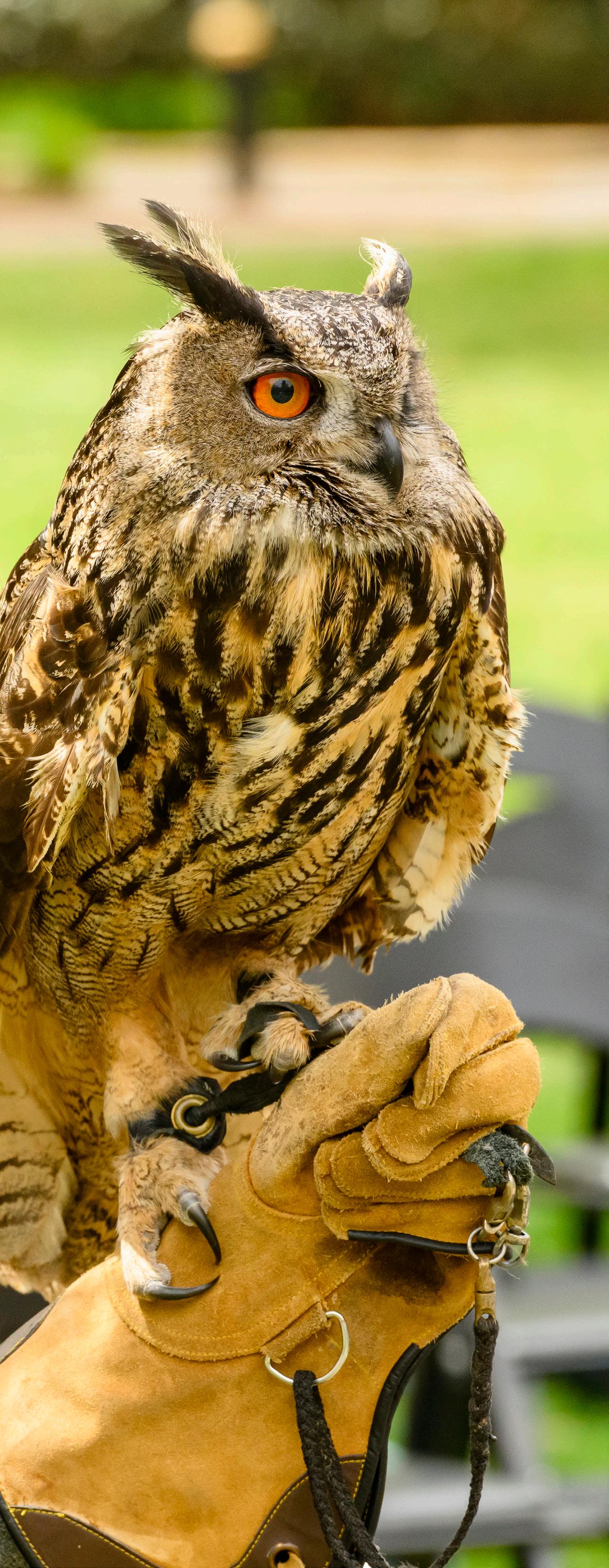
EDUCATION
Create a cuttingedge, interdisciplinary learning experience that empowers people to be good stewards of our common home
6 Faculty Hires
Megan Lickley
Climate
Brian Gri ths
Human ecologist teaching in MS-ESM

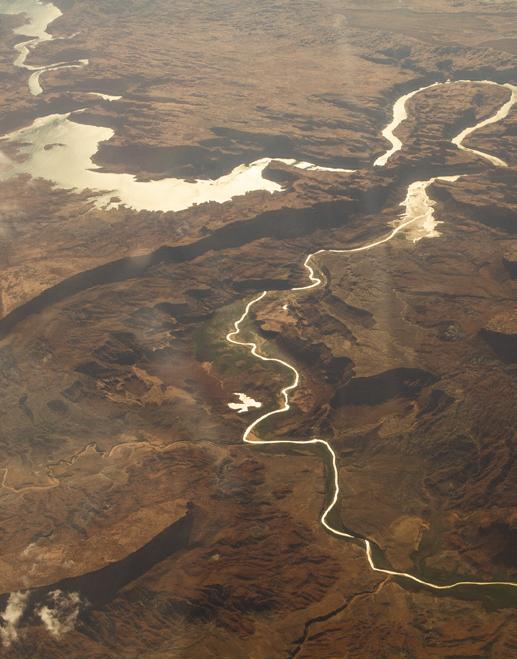
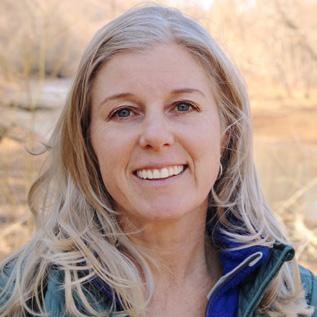
Transnational


2 Magazine Issues
Our signature magazine, Common Home, published two issues under the leadership of 5 student editors, covering topics from water scarcity to racial justice, activist burnout to art and social change. Stories feature perspectives from Georgetown experts and thought leaders as well as students and salient external opinions. Above: Covers of issues 1 and 2 of Common Home.
Interdisciplinary Classes
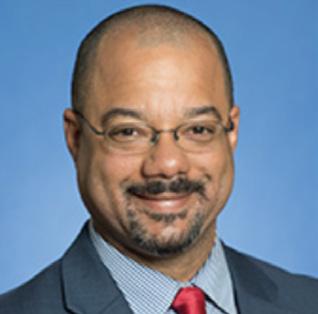
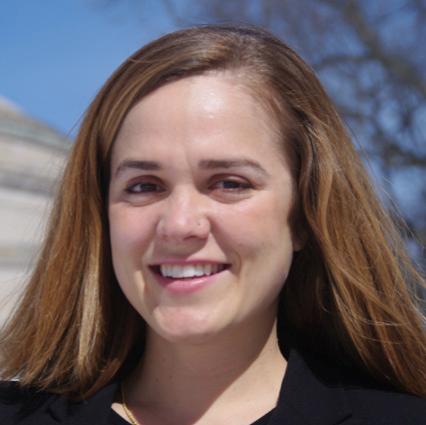

Jesse Meiller
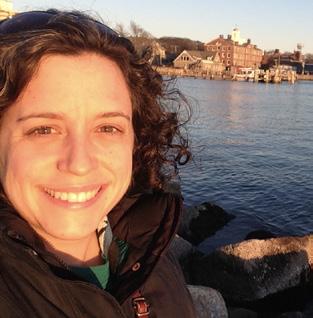
Marine ecologist and environmental toxicologist teaching in MS-ESM
ese faculty will broaden Georgetown’s scholarship and expertise on the environment and increase interdisciplinary collaboration, while enabling us to progress on goals such as developing a Master’s of Science program, career capacity, and experiential learning opportunities.
Facilitated by the Earth Commons, the “Environmental Law” course launched in Spring 2022 at the Capitol Applied Learning Labs (CALL). Taught by Andy Mergen and Matt Oakes—sta attorneys at the Department of Justice—the course provides a broad perspective on the eld of environmental law and focuses on laws currently in place, how they got there, how they work, and how they evolve. e course will convene again in Spring 2023 along with exciting new o erings facilitied by the Earth Commons including “Intro to Green Campaigns,” with Oceana, “Resolving Environmental Con ict” with RARE, “Food Security and Sustainability,” “Art and the Environment,” with LubDub eatre, and “How to Frame a Legal Argument.”
Gina Green
Sustainability researcher leading ECo Innovation Lab
Marcus King
climate change and water security specialist working jointly with SFS to develop Master’s of Science
Rebecca Helm
Environmental scientist/ ecologist studying the open ocean and its surface
scientist working jointly with STIA
A Magazine from the Earth Commons—Georgetown University’s Insitute for Environment & Sustainability
Spring 2021 Issue 001 Fallowed Ground e treaty governing the Colorado River turns 100... and faces a fraught future Spring 2022 Issue 002 A Magazine from the Earth Commons—Georgetown’s Institute for Environment & Sustainability 8 e ECo Annual Report
TOXIC RACISM: Georgetown scholars discuss perspectives on environmental racism
MS-ESM Class of 2023 Student Pro le.
45 Master’s Students
e Georgetown Master of Science in Environment and Sustainability Management (MS-ESM) created by the Earth Commons, the McDonough School of Business and the Graduate School of Arts and Sciences blends science and business principles to enable graduates to decisively address environmental threats and help build a more sustainable future within almost any organization.
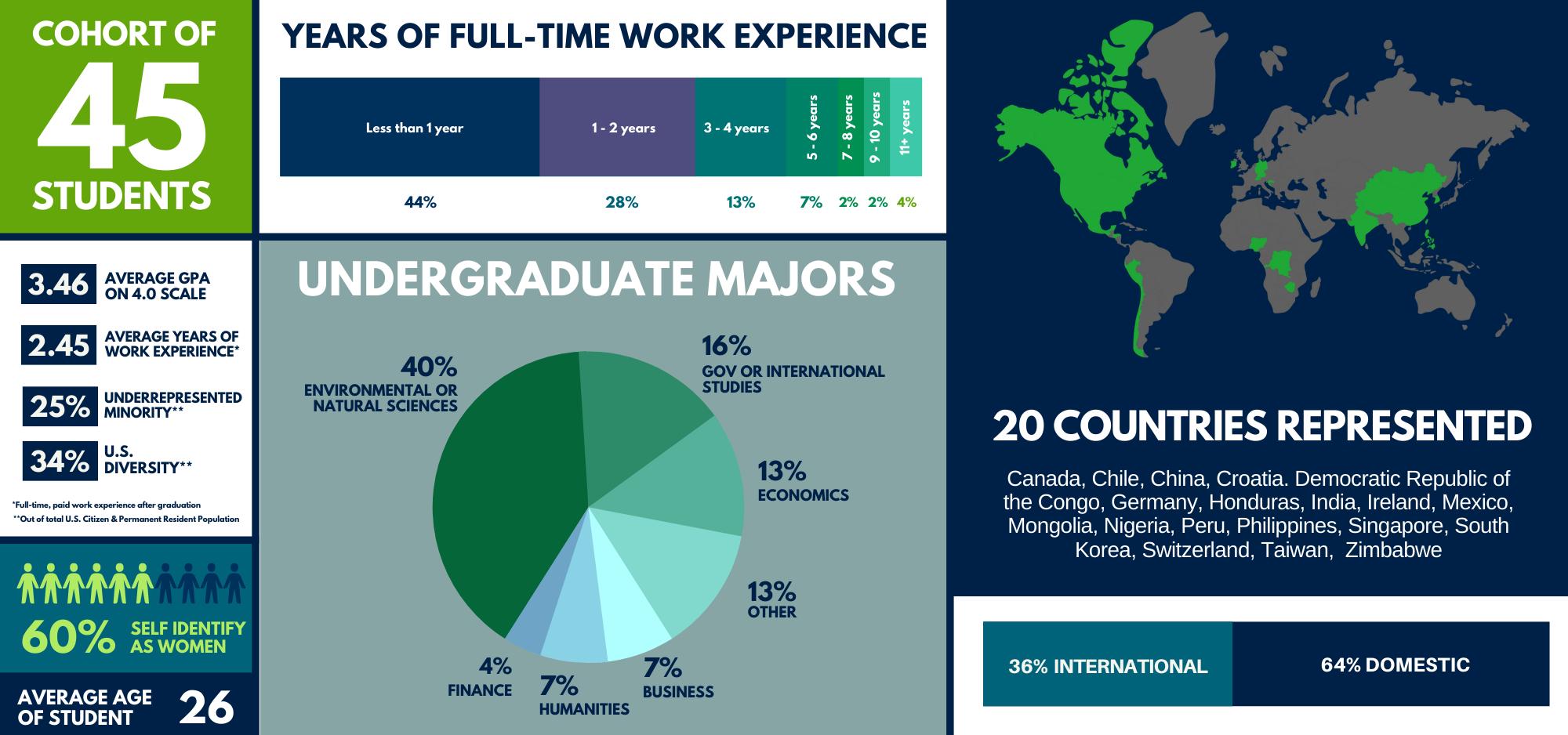
ECo Artwalk
e ECo Artwalk is an art installation throughout the Georgetown campus featuring artwork that furthers the dialogue around environmental issues and the call to action to address them. Our rst featured artist, Alisa Singer, uses abstract images to illustrate the science behind the critical changes impacting our planet. View the gallery at earthcommons.georgetown.edu/arts-events/ecoartwalk.

94 Faculty A liates
We have recruited 94 Georgetown University faculty to a liate with the Earth Commons in order to clearly de ne and support those furthering research and leadership around environment and sustainability at Georgetown and create new connections and collaborations for research and program development.
9 e ECo Annual Report
Alisa Singer’s“Climate Refugees,” appears in the ECo Artwalk.
7 ECo Fellows
ECo Fellows are conducting work at the intersection of academics, culture, and action for the environment. ese fellowships enable and accelerate interdisciplinary and collaborative environmental and sustainability work that honors our mission to care for our common home.
Postdocs Faculty Post-bac
partner with ECo A liate faculty on interdisciplinary research and teaching projects over 2 years
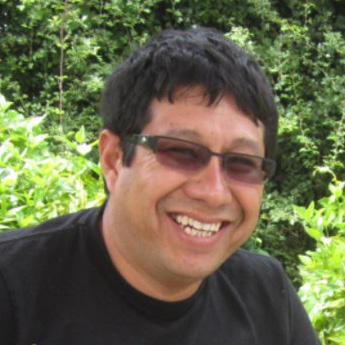
work on projects aligned with the aims of the ECo to move Georgetown and the world forward on critical issues of environment and sustainability
Postdoctoral Fellows
work jointly with our partners to move the ECo forward on our research, academic, engagement, and service agendas
Availability of food is one of the key components of food security. Published results indicate that the impact of climate change on food security could be signi cant with a projected range of between 5 million to 170 million additional people at risk of hunger by 2080. Predicting where crop pests and diseases may occur, both now and in the future under di erent climate scenarios, is a major challenge for crop production, food availability, and indirectly for food security. Estimating the fundamental thermal niche (optimal, minimum, and maximum temperature) is a potential approach to understanding when and where crop pests and diseases could damage food supplies. is information can generate global thermal suitability maps to show how many months each location is suitable for a particular crop pest/disease under current and projected climate scenarios, which is important for crop pest/disease surveillance and agricultural planning.
is postdoctoral research project traces the rise of environmental peacebuilding and sustainability practices in the context of United Nations peace operations. Building on Danielak’s dissertation research—which looked at the ideas and practice of realizing peace through ‘public works’ infrastructure projects—she will examine communities’ response to speci c infrastructure projects pursued by the UN. Speci cally, Denielak will conduct additional research with municipal authorities and communities in Bamako (Mali), Nicosia (Cyprus), and Baidoa (Somalia) to understand how local communities engage with, and eventually operationalize, environmental peacebuilding. is fellowship will contribute a planning perspective to current debates on environmental challenges while also centering peace and con ict studies in my teaching and research at Georgetown.
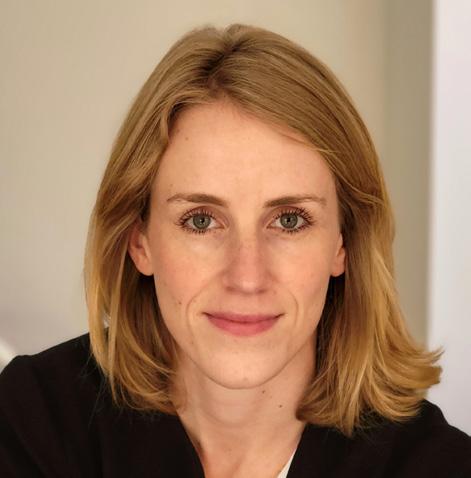 Oswaldo Villena
Oswaldo Villena
Education 10 e ECo Annual Report
Silvia Danielak
Faculty Fellows
Olúfemi O. Táíwò Derek Goldman
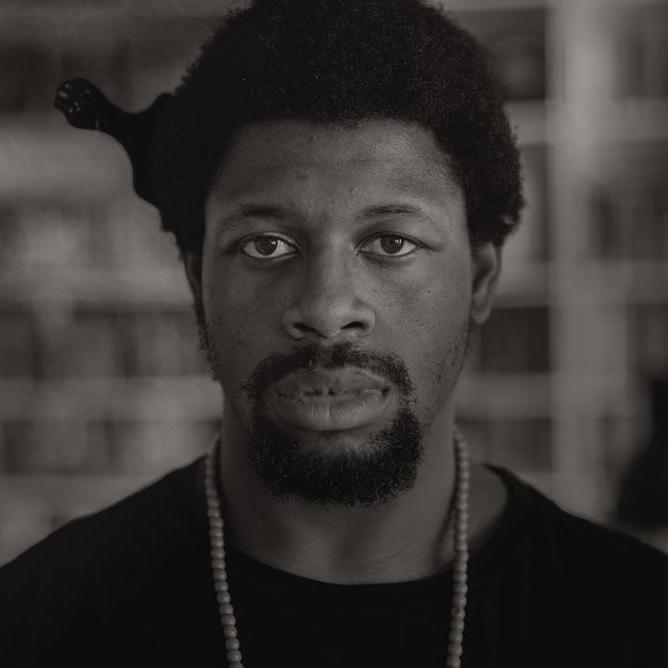
Olúfemi O. Táíwò is an Associate Professor of Philosophy at Georgetown University whose theoretical work draws liberally from the Black radical tradition, contemporary philosophy of language, contemporary social science, German transcendental philosophy, materialist thought, histories of activism and activist thinkers. His rst book, Reconsidering Reparations, considers a “constructive” philosophical argument for reparations and explores links with environmental justice. He also writes public philosophy, including articles exploring intersections of climate justice and colonialism.
Derek
(the Lab)
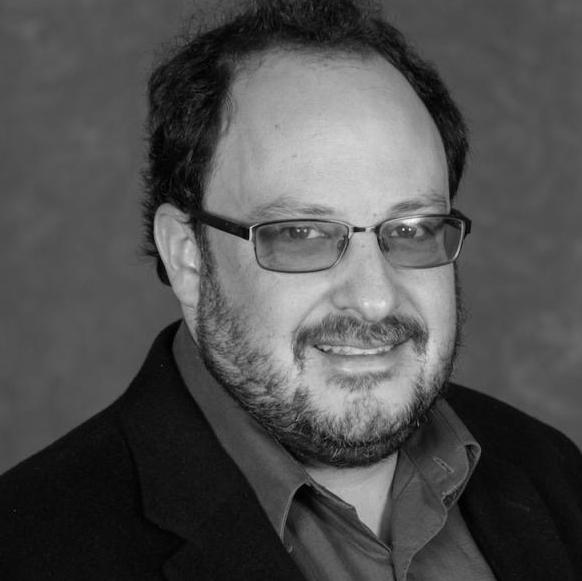
co-Founding
is developing a ground-breaking initiative with vibrant curricular and public programming elements at the intersection of performance/ multidisciplinary arts and the environment. Together with the Earth Commons, he will curate an innovative high-pro le program of public events, festivals, performances, residencies and concerts at the intersection of environment, climate, intergenerational justice, sustainability, global health and development. He will serve as a core resource to integrate the arts into ECo curricular development initiatives.
Shelby Gresch (SFS’22) is developing and piloting living laboratories on campus
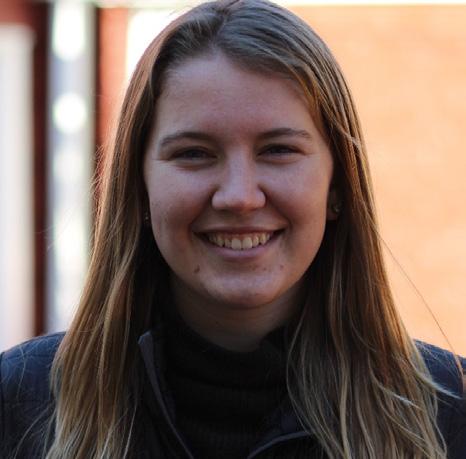
Post-baccalaureate Fellows
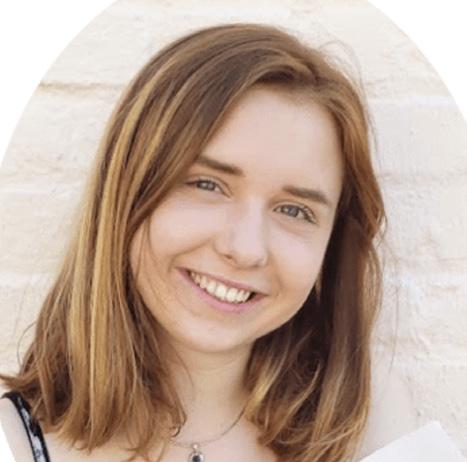
Ashanee Kottage (SFS’22) is working with the Lab for Global Performance & Politics
Keaton Nara (COL’22) is working with the Earth Commons and the Red House to design an undergraduate curriculum
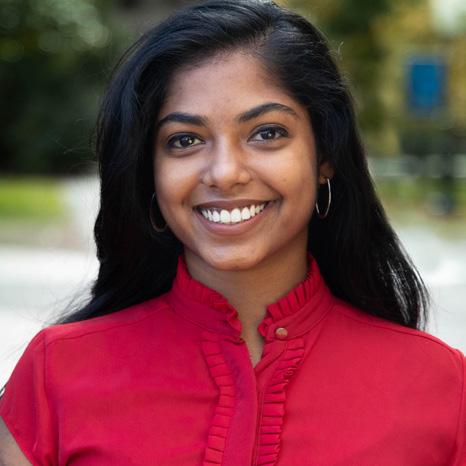 Goldman,
Director of the Laboratory for Global Performance and Politics
and Professor of eater and Performance Studies,
Goldman,
Director of the Laboratory for Global Performance and Politics
and Professor of eater and Performance Studies,
11 e ECo Annual Report

12 e ECo Annual Report
Goal 2
RESEARCH
Blue button Porpita species, viewed from above.Denis Rieck.
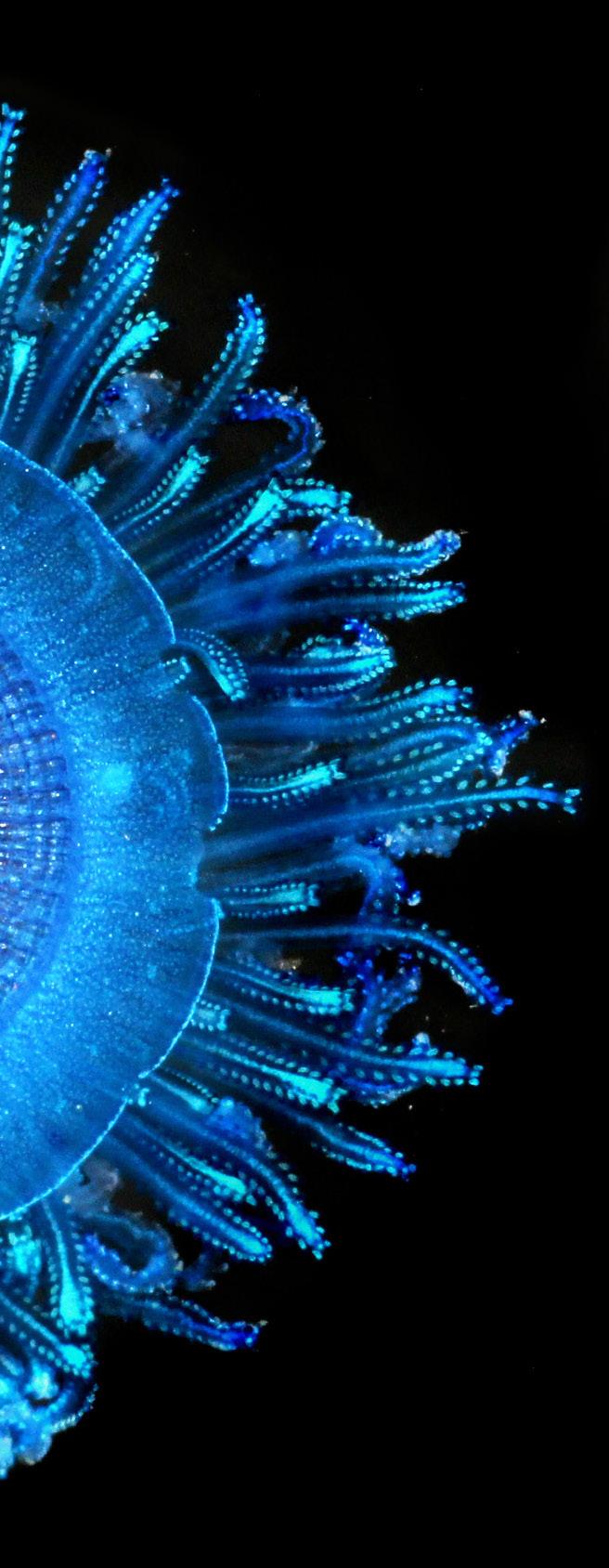
Catalyze environmental scholarship across disciplines to innovate solutions for critical environmental issues
Research Highlights
From creating solutions for better face masks to understanding how dolphins interact, scholarship from our a liated faculty gives us a better understanding of the environment and actions we can take to save it—and each other.
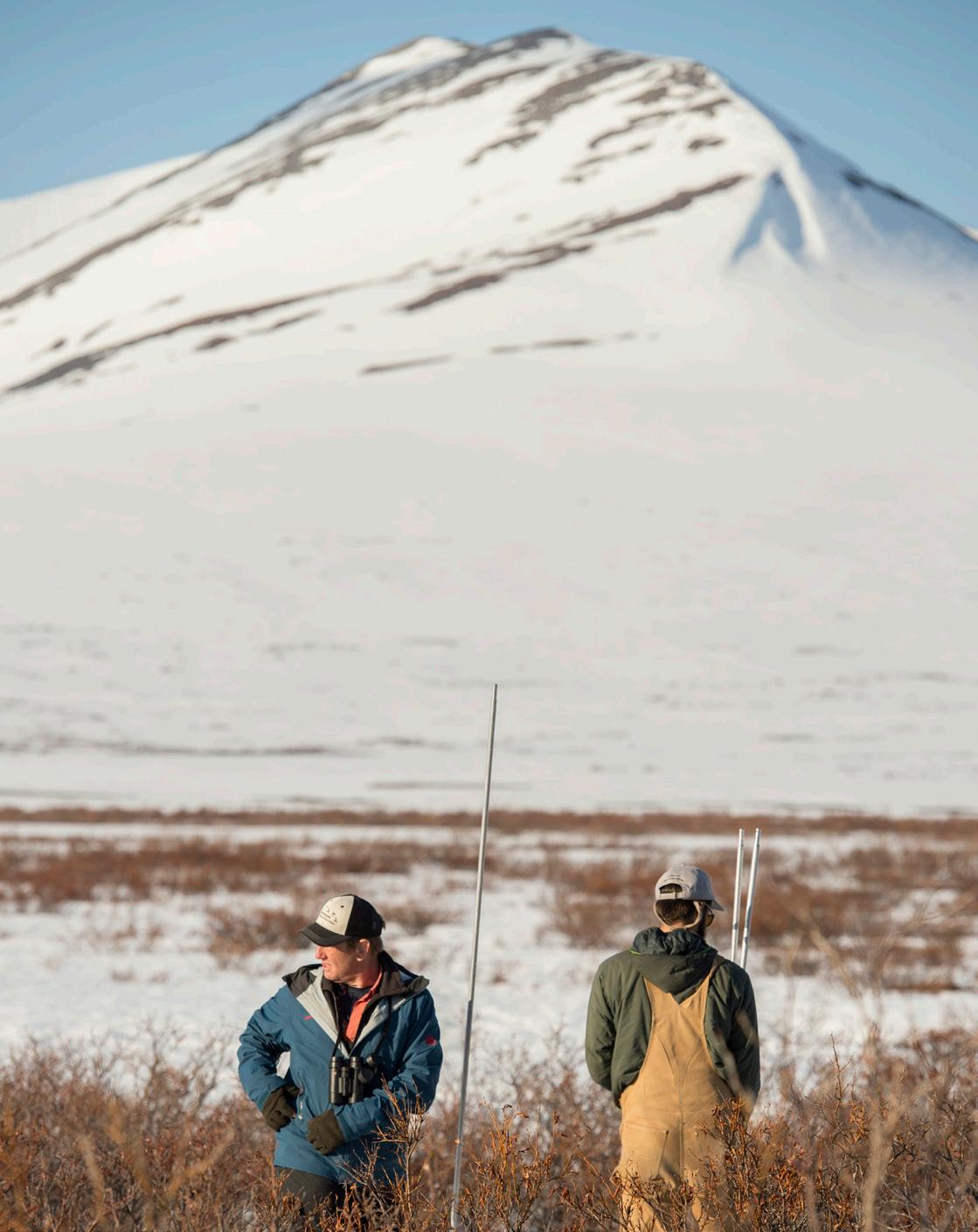
Subscribe to our ECo Newsletter for research updates and more by scanning the QR code.


Did
the ‘Black
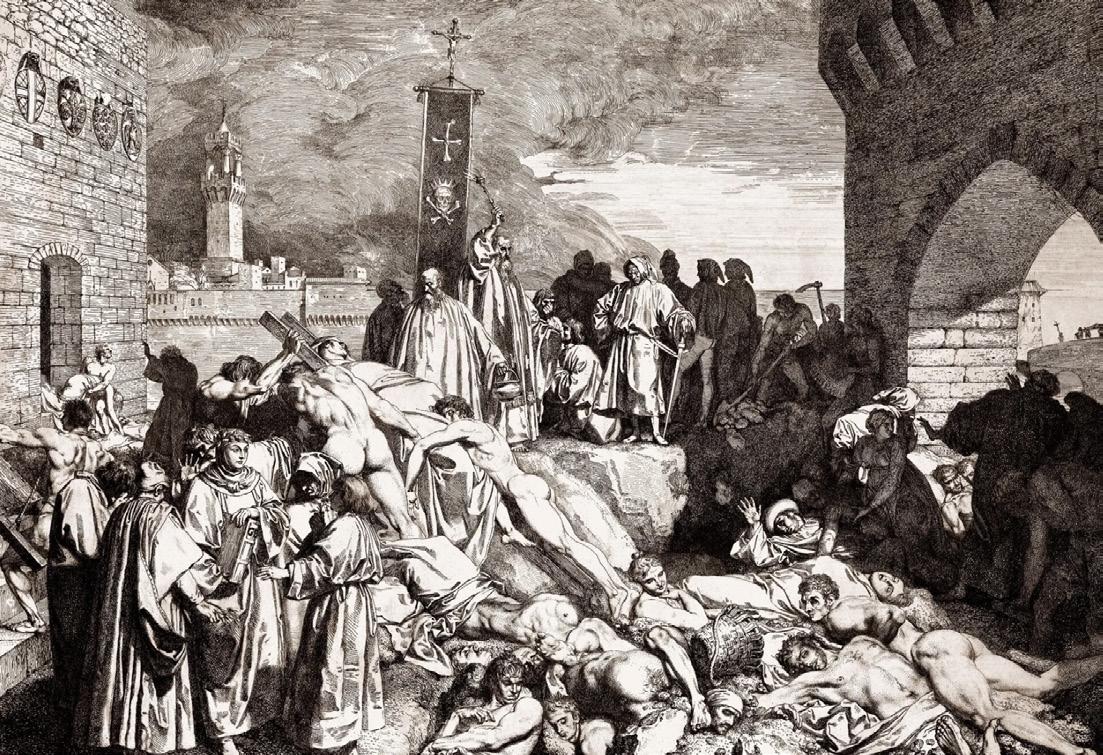
Death’ Really Kill Half of Europe? New Research Says No.
Looking at ancient deposits of pollen as markers of agricultural activity, researchers—including Georgetown’s Timothy New eld—found that the Black Death caused a patchwork of destruction in Europe (Izdebski et al. 2021).

Georgetown Researchers Aim to Clean Up U.S. Cement Production with Policy Solutions for Technological Upgrades
An interdisciplinary team of Georgetown researchers are collaborating to investigate a set of technology solutions and policy proposals— including technology upgrades—that can drastically reduce the cement industry’s carbon footprint.
Research 14 e ECo Annual Report
Mask Innovation Using Copper
ECo Faculty A liate Kai Liu and collaborators transformed copper nanowires into metal foams that e ectively lter out microbes. eir research shows that copper foam is a highly e cient, durable, reusable, and recyclable ltration system that might be utilized in both facemasks and air cleaners. at is: it is e ective and reusable.
Dolphins’ playful habits form bonds, but spread virus
Georgetown’s Janet Mann and other scientists are trying to understand how a highly contagious and lethal disease called cetacean morbillivirus can spread rapidly among dolphins along the Atlantic Coast, as it did from 2013 to 2015 (AP News 2022).
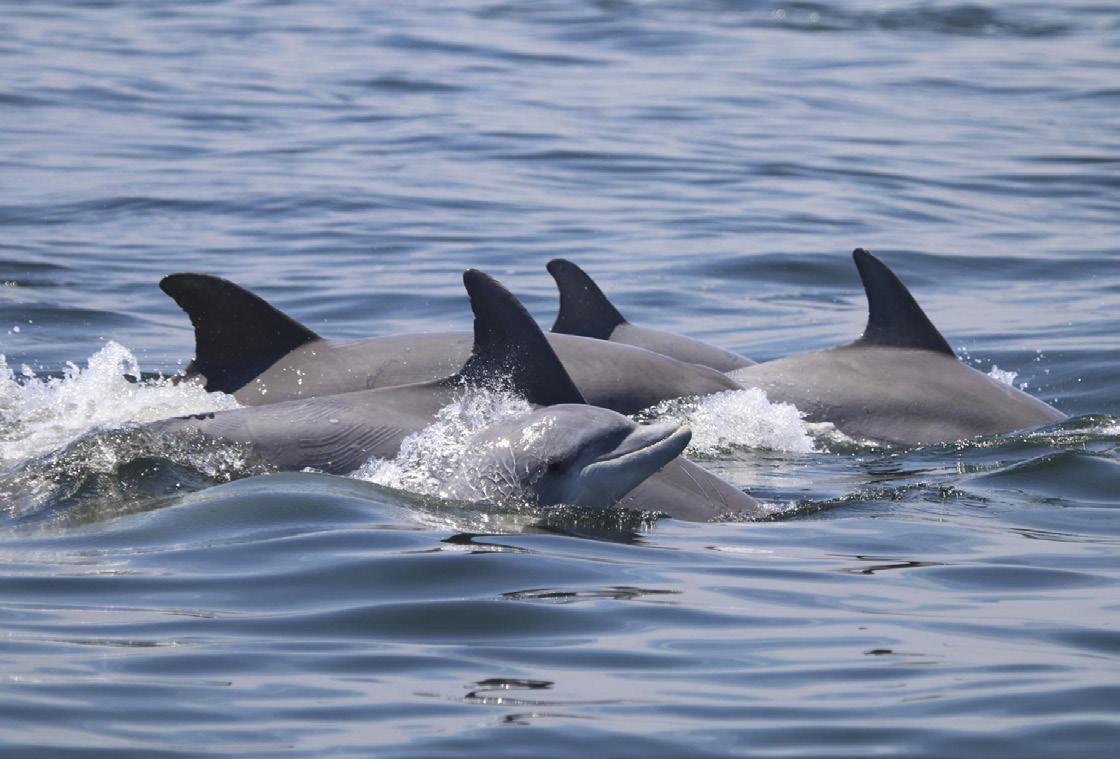
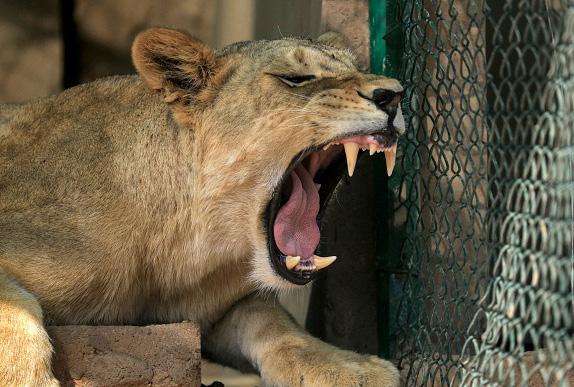
Climate change increases cross-species viral transmission risk

A new paper co-authored by ECo Faculty A liate Colin J. Carlson simulates potential hotspots of future viral sharing and highlights an urgent need to pair viral surveillance and discovery e orts with biodiversity surveys tracking species’ range shifts, especially in tropical regions that harbor the most zoonoses and are experiencing rapid warming. (Carlson et al. 2022).
Physicists Unlock Longstanding Mysteries of “Shear ickening”
Je rey Urbach, Dan Blair and co-authors investigated studied cornstarch, water and glycerol at a microscopic level to provide the rst detailed quantitative measurement of independent motion of particles and uid. eir ndings for how particles and uids stop, start and ow has global implications in addition to industrial sustainability bene ts. (Rathee et al. 2022)
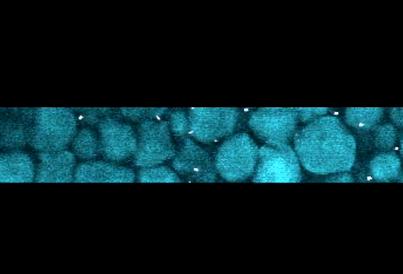
15 e ECo Annual Report
Expanding Capacity
In addition to our new faculty hires and faculty and postdoctoral fellowships, the Earth Commons is expanding research capacity at Georgetown
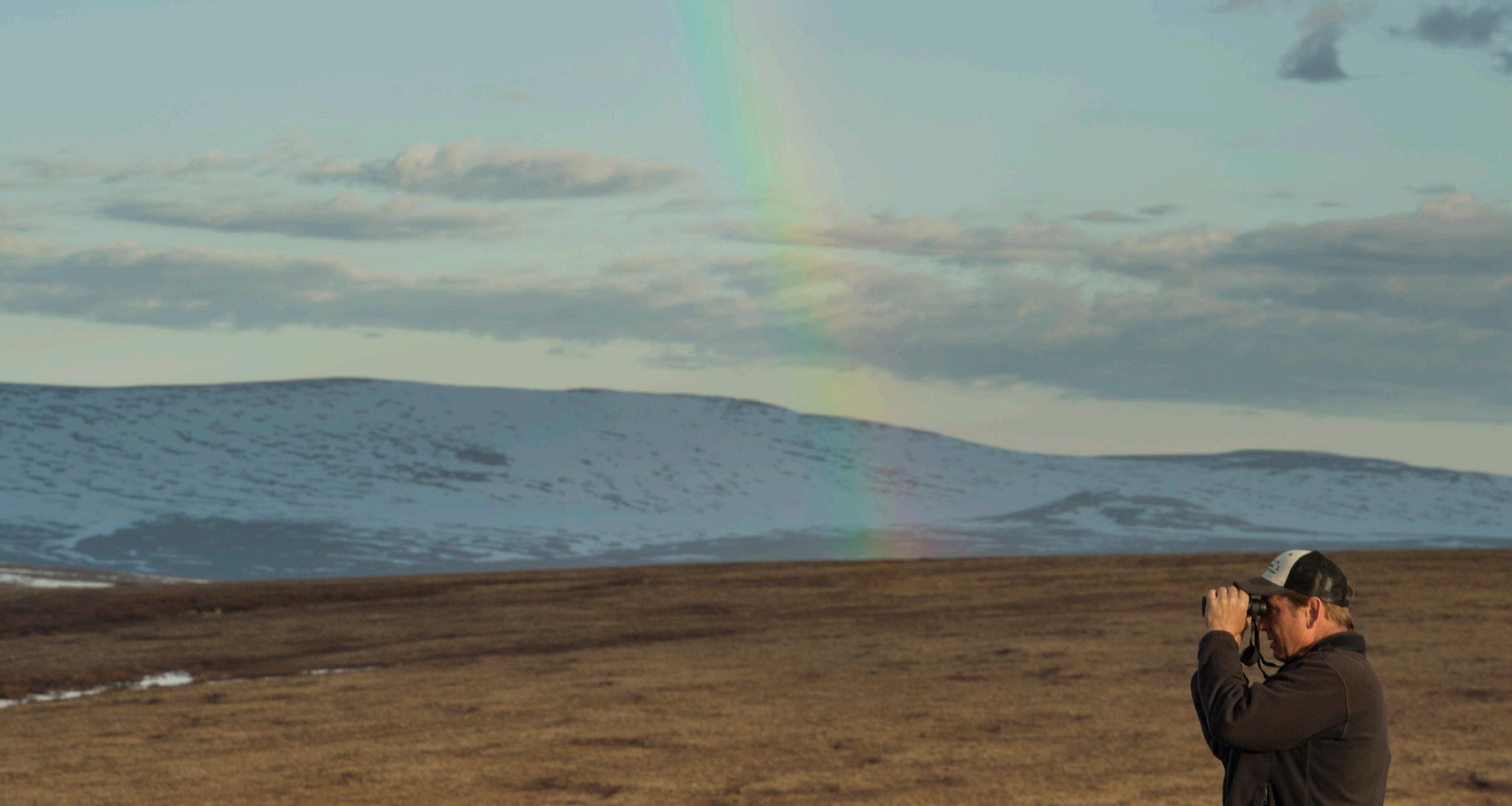
New Partners Impact Awards RICI Network
New partnership with the the Chesapeake Watershed Cooperative Ecosystem Studies Unit enables Georgetown faculty to take advantage of research and technical resources and qualify for a lower indirect rate for CESU projects.
ECo Impact Awards provide funding support to faculty and sta across Georgetown’s schools and campuses for projects that involve environmental themes. Each project pursues multidisciplinary directions and collaborations for research, seminar series, or educational and outreach programs and makes Georgetown and its scholarship greener and more vibrant.
As the demand for interdisciplinary approaches to complex problems has risen, new organizational structures have emerged to support the complementarities that exist between departments and schools. e university is committed to supporting Research Initiatives, Centers, and Institutes (RICIs) landscape.
Earth Commons director Pete Marra searching for bluethroats in Nome, Alaska. Tim Romano courtesty of the Smithsonian Institution
Research 16 e ECo Annual Report
ECo Impact Awards
Assessing the e ects of land use change on periodical cicada populations and tracing their trophic impacts on eastern forests
Martha Weiss, John Lill, Ginger Allington. is award will enable ecologists and geographers to assess how historic and projected future patterns of land use change have a ected and will continue to impact the abundance and geographic distribution of periodical cicadas in Montgomery County, MD.
Earth at the Crossroads: A Cosmic Per spective on Environmental Crisis
Sarah Stewart Johnson, Dagomar DeGroot, Bill Diamond, Jonathon Keats. Today’s intensifying search for extraterrestrial life o ers unique perspectives on the environmental challenges that may now imperil life on Earth. is award will support recipients to host a conference on the environmental dimensions of the search for extraterrestrial life.
Modeling Energy Democracy in a Federal and Localist System
Sheila R. Foster, Meryl Cherto , Elena DeNictolis. is project will build on emerging legal and policy innovations, primarily at the state and local level, that embrace local generation of energy, local community participation in energy decisions, equitable access to energy resources like solar, and a commitment to a ordable residential clean energy.
Resilience: How Past Populations Sur vived Climate Changes
Dagomar DeGroot, John McNeill, Amy Hessl. ese project leads are developing an edited book that, for the rst time, surveys how populations were resilient to climate changes from the Last Glacial Maximum to the present period of human-caused warming. Support from the ECo Impact Program will allow for the authors to gather for a two-day workshop at Georgetown.
Plants, Pollinators and People: Uni ed Research-and-Teaching Gardens at Georgetown University
project will upgrade and
research-teaching gardens at Georgetown to educate the community about urban ecology, biodiversity, ecological gardening, permaculture, and landscape design that pleases the eye while providing food and habitat for pollinators and birds.
Towards Critical Materials Separa
tions: Rapid Synthesis and Characterization of Rare Earth Element-Oxo clusters via Reactions in Micro- and
Karah Knope, Kaveh Jorabchi. Innovations in separations are critical for mitigating environmental impact and sustaining current clean energy technologies. his project will explore small droplets (100 nanometers-10 micrometers) as both synthesis and characterization vessels.
Adriane Fugh-Berman, Martha Weiss, Bill Hahn. is
showcase
17 e ECo Annual Report
Funding Spotlight: Impact on Campus
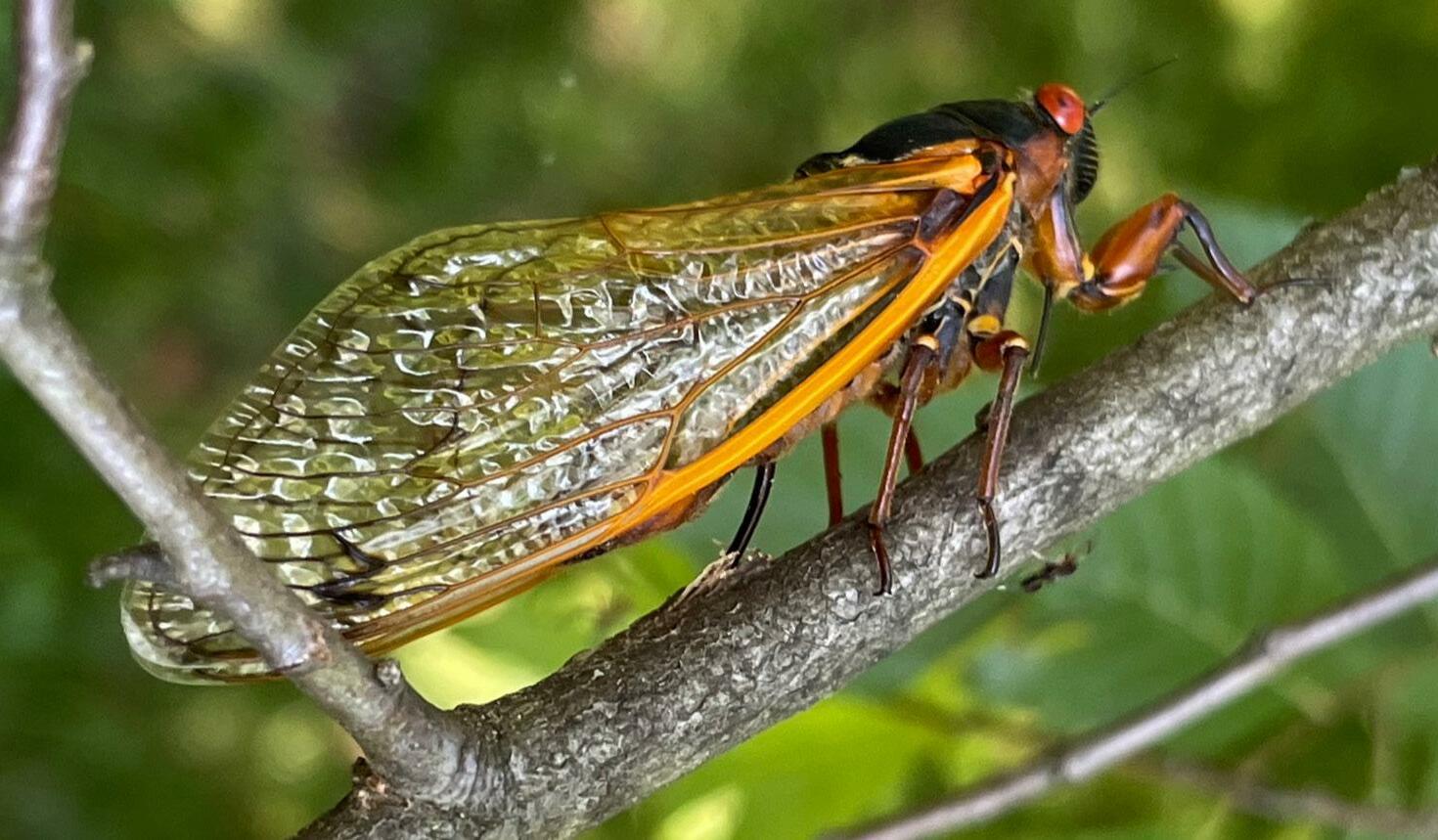
e Plants, Pollinators and People project received an ECo Impact Award to upgrade and showcase research-teaching gardens at Georgetown that educate the community about urban ecology, biodiversity, ecological gardening, permaculture, and landscape design that pleases the eye while providing food and habitat for pollinators and birds.
e project will develop, improve and support research and teaching gardens on the Main and Medical Campuses, including three plots on the Medical Campus maintained by Dr. Adriane
Fugh-Berman that showcase medicinal and edible plants, culinary herbs, and drought-tolerant plants, the Davis/Biology Department Garden outside of Regents Hall, and the Butter y Garden on Observatory Hill maintained by Dr. Martha Weiss, which features diverse nectar sources and larval host plants that attract butter ies, moths, and other pollinators. e gardens will serve to provide nectar sources for the honey bee hives maintained by Dr. Bill Hahn, who directs the Georgetown Bee Campus program. Campus hives are located on observatory hill.
Research 18 e ECo Annual Report
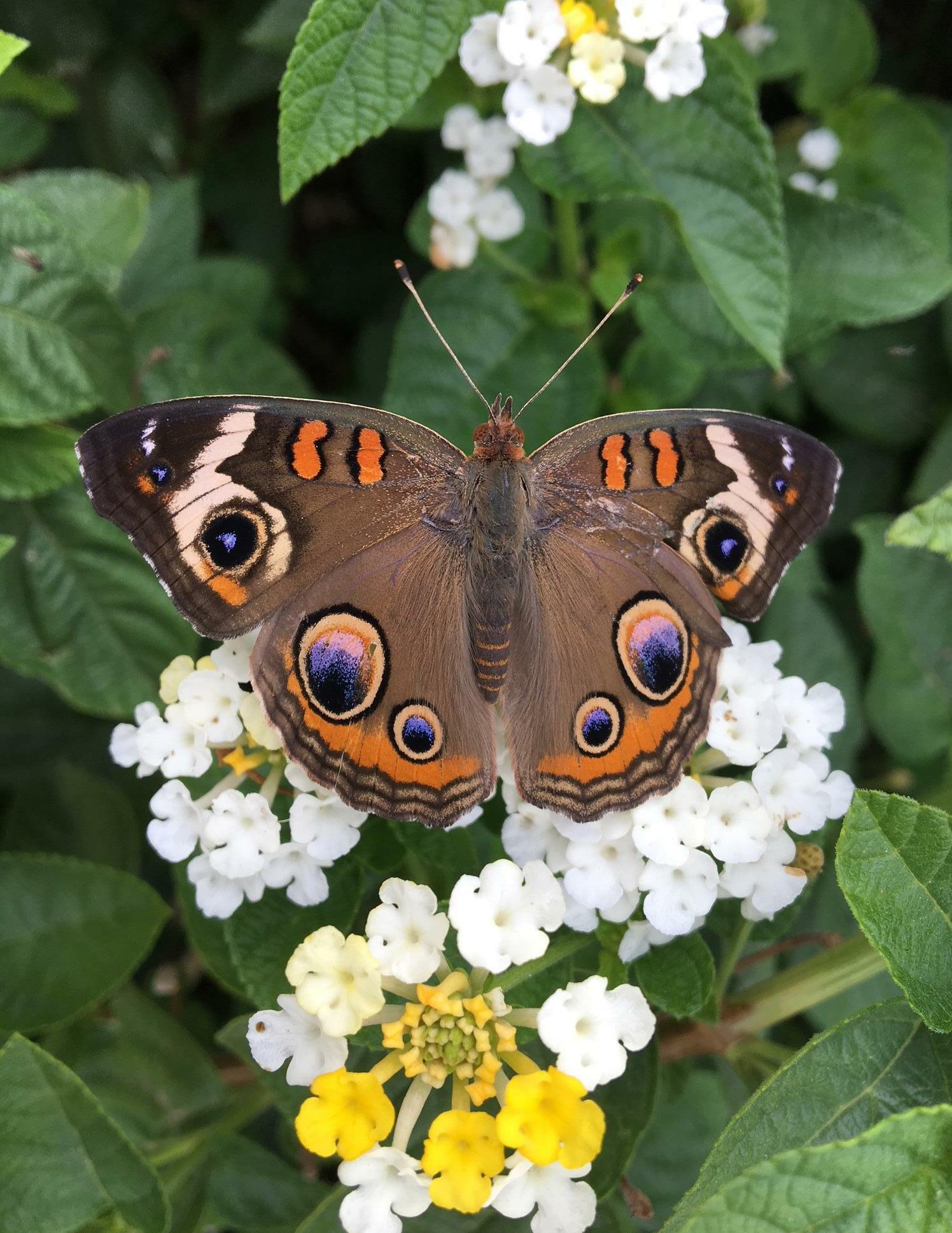 Right: A Common buckeye moth nectaring on a Lantana ower;
Right: A Common buckeye moth nectaring on a Lantana ower;
19 e ECo
Left: Cicada. Martha Weiss.
Annual Report
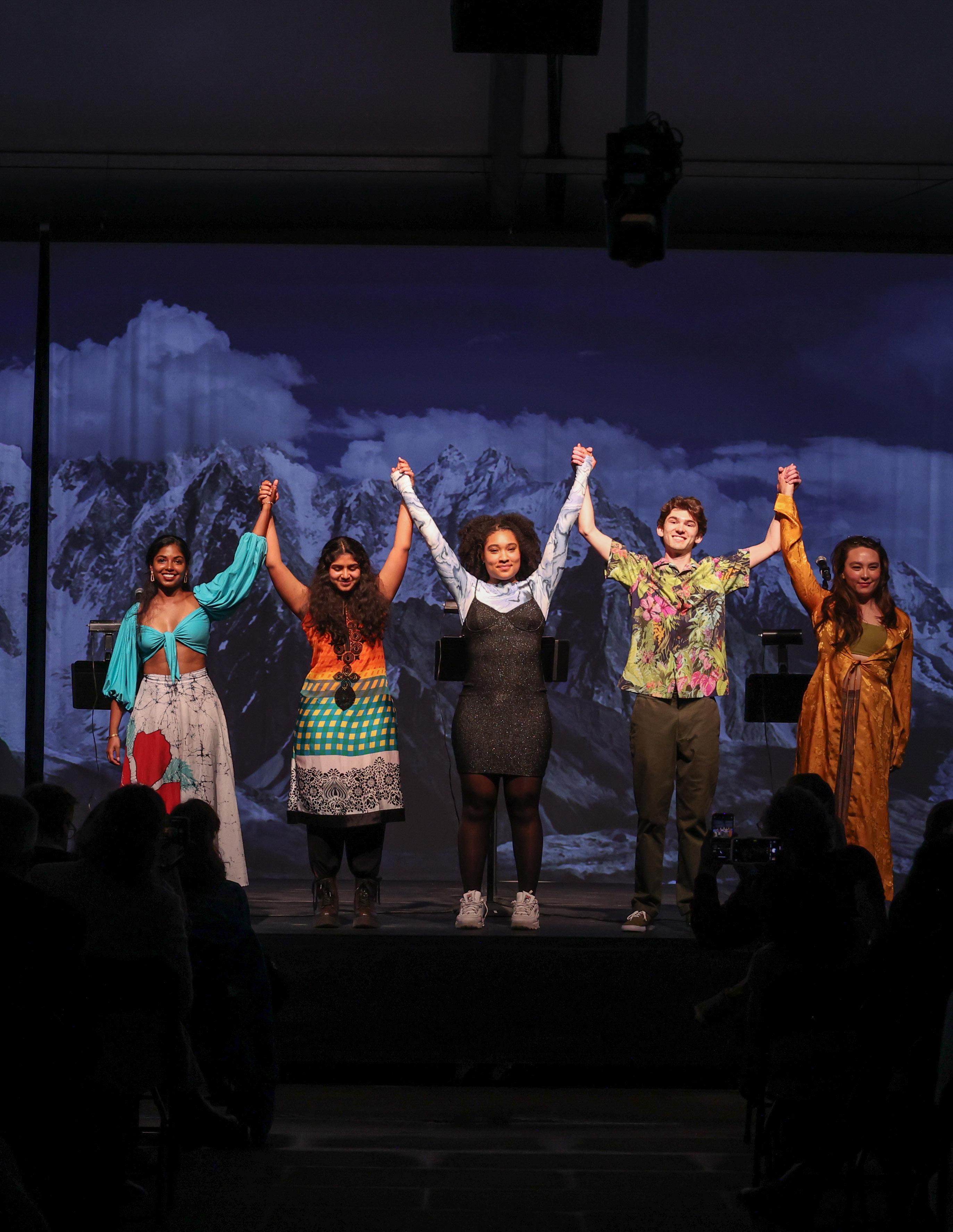
20 e ECo Annual Report
We Hear You—A Climate Archive at e John F. Kennedy Center as part of COAL + ICE. Featuring Ashanee Kottage, Nadia Nazar, Myiah Smith. Wolf Hertztberg
Goal 3 ACTION
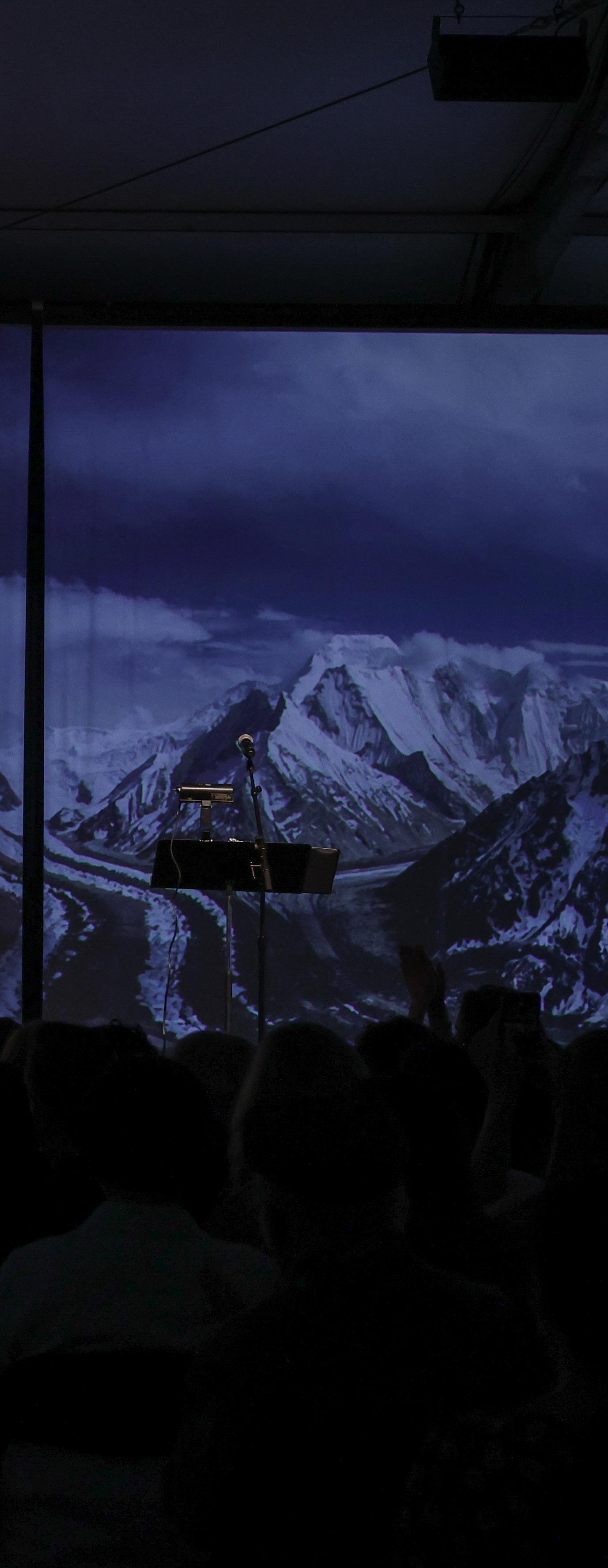
Create interdisciplinary opportunities for faculty, students, and external partners to pursue solutions in service of the world
Setting the Course
O ce of Sustainability
e O ce of Sustainability and Earth Commons bridge the university’s ambitious sustainability practice with the institute’s environmental education and research capacity to develop urgently-needed, scalable solutions for the campus, local communities and planet. is collaboration supports Georgetown in leading on actions ranging from campus construction and operations to the goods and services we use, as well as the creation of courses, degrees and scholarship that inform today’s policymakers and shape tomorrow’s environmental leaders. First up, the Earth Commons is participating in the O ce’s Sustainability Plan, a comprehensive and ambitious roadmap to achieving the university’s many sustainability commitments.
Hoya Harvest
e Earth Commons is creating a sense of sharedresponsibility around sustainable food systems by integrating farming spaces into the campus, generating food for the community, hands-on learning experiences, and dialogue around human impacts and food production.
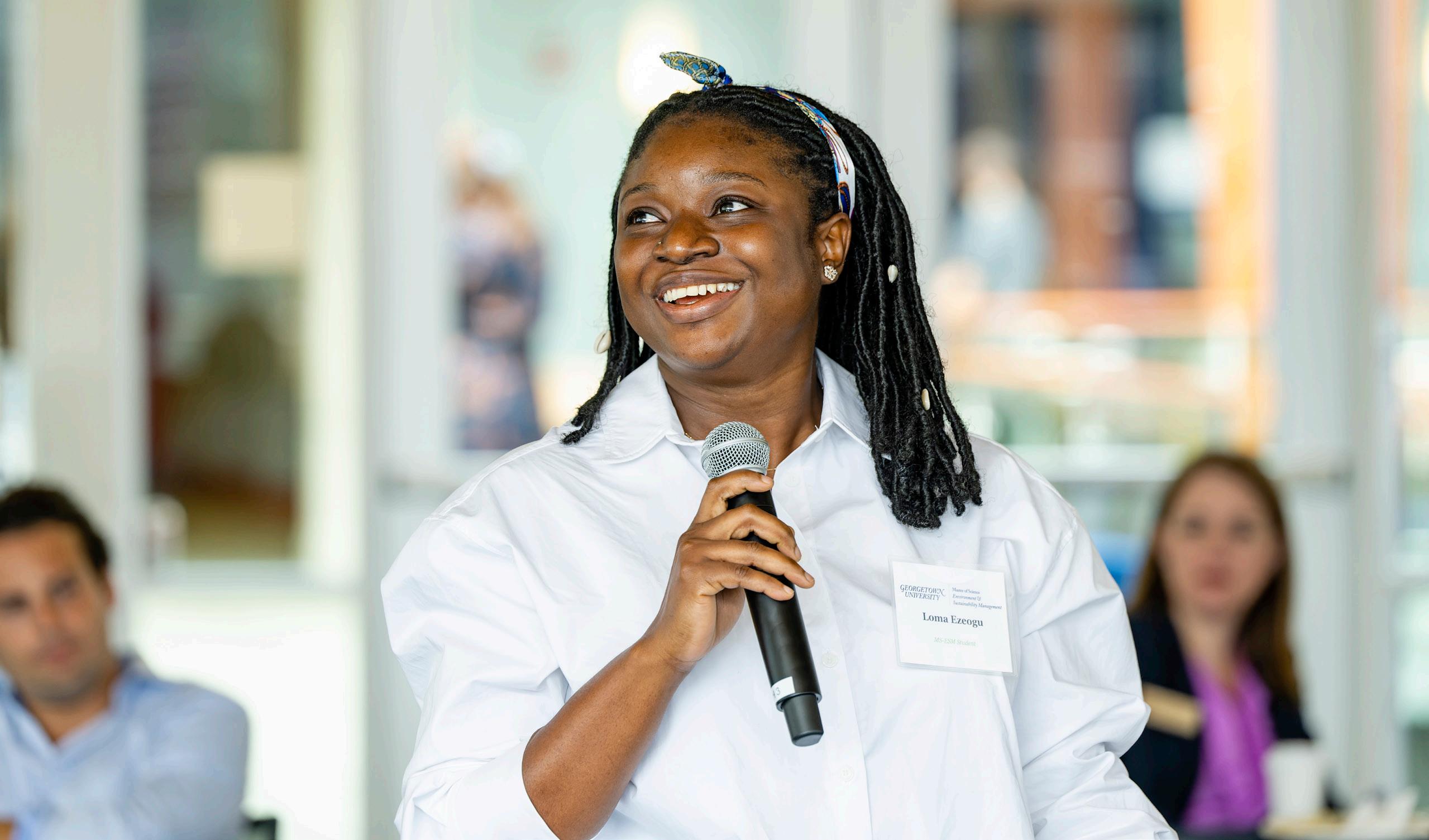
Undergraduate Degree
e Earth Commons and the College of Arts & Sciences are developing an interdisciplinary, experiential undergraduate curriculum that will teach students to understand their environment, reduce human impacts across sectors, advance research and sustainable practices, and—regardless of their future vocation—prepare them to be good stewards of our common home.
Uloma Ezeogu, MS-ESM student of the degree’s inaugural cohort at an orientation event. Art Pittman
Action 22 e ECo Annual Report
VP for Sustainability
e Earth Commons was instrumental in restructuring the O ce of Sustainability to be led by the university’s rst vice president of sustainability, Meghan Chapple.

e O ce will build on Georgetown’s past and ongoing sustainability work and lead the university’s strategic actions to make Georgetown and the world more sustainable, building upon Georgetown’s commitment to divest from fossil fuels, launch of a power purchase agreement from a solar farm that provides two-thirds of the university’s electricity, and establish an energy partnership that promotes sustainability and energy conservation.
e O ce now includes directors of Sustainability for Administration & Culture; Sustainability for Campus & Community, and an Assistant Director of Sustainability.
Green Commons Awards
e Earth Commons created these awards to spark campus dialogue through events, performances and visiting researchers, writers and artists with creative approaches to environmental and sustainability issues. In collaboration with the O ce of Sustainability, these awards will be a maximum of $5K for travel and/or residency expenses, materials and supplies and event planning and be available year-round and allow faculty, sta and students throughout the campus to apply.
Climate Innovation Ideathon
Brought together undergraduate and graduate student participants and expert mentors to develop an entrepreneurial solution to critical environmental challenges.
ReUse Shop
A pop-up shop on campus in early Fall.
e shop enabled students to purchase pre-owned clothes, books, or dorm items donated during the O ce of Sustainability’s Spring 2022 Move-Out Drive. Not only did the store reduce waste on campus, but it will also create a place where students can buy what they need at accessible prices and raise money for GU Mutual Aid and Environmental Charities in D.C.
Water Documentary
In a state in which over 25% of residents are already experiencing severe drought conditions, Arizona water cuts will disproportionately impact communities in rural areas, such as the Ak-Chin Indian Community, as well as farmers.
Recent graduate Anya Wahal (C’22) is exploring the topic in a documentary lm.
Meghan Chapple
23 e ECo Annual Report
Action Spotlight: We Hear You—A Climate Archive
e Earth Commons—Georgetown University’s Institute for Environment & Sustainability, Dramaten ( e Royal Dramatic eatre of Sweden), e Embassy of Sweden in Washington, DC, and e Laboratory for Global Performance and Politics announce the launch of We Hear You—A Climate Archive, co-conceived by Earth Commons Artist in Residence Caitlin Nasema Cassidy and Jacob Hirdwall.
Inspired by Greta unberg’s urgent question “Can you hear me?,” this project seeks to amplify—and to record for future generations—the ways that today’s young people are experiencing changes in the fundamental forces of the earth. We Hear You—A Climate Archive includes a two-year series of curated international performance and the launch of a digital platform for global climate storytelling. In addition to these public programs, the project also includes curricular engagement with students at Georgetown University. e performance series o cially launched with an evening of climate storytelling on Friday, March 18 at the COAL + ICE exhibition presented by the John F. Kennedy Center for the Performing Arts and Asia Society. An ensemble of DC-area youth artists and activists presented an original performance weaving their own experiences with the words of Greta unberg.
Following its launch in DC, We Hear You—A Climate Archive will commission 77 additional stories from young people around the world. ese commissions will inform the launch of a digital platform for global climate storytelling, as well as a multi-year international curated performance series, culminating in a performance at Dramaten directed by Jacob Hirdwall.
We Hear You—A Climate Archive opened the
“ “
We need stories that deliver joy, that o er me ways to root in wisdom and move forward in hope.
CAITLIN NASEMA CASSIDY
United Nations Stockholm+50 June 1 plenary at Stockholm University. e performance featured Razmus Nyström and Melinda Kinnaman from e Royal Dramatic eatre of Sweden with text by Greta unberg, Lilli Hokama, and Jacob Hirdwall and direction by Jacob Hirdwall.
“We need stories about what we love and stand to lose,” says Cassidy. “In this time of global crises, I know I need stories that deliver joy, that o er me ways to root in wisdom and move forward in hope. We Hear You—A Climate Archive is asking: How can we hear the young folx—the artists and activists doing the work of imagining more liveable futures? What can we learn from them—from one another?”
We Hear You—A Climate Archive grows from the performance We Hear You—Greta unbergs Tal, originally presented at Sweden’s Royal Dramatic eatre in Stockholm on January 31, 2020. Staged by Jacob Hirdwall and Ada Berger, this performance drew on the texts of Greta’s speeches collected in No One Is Too Small To Make a Di erence (Penguin, 2019).
Action 24 e ECo Annual Report
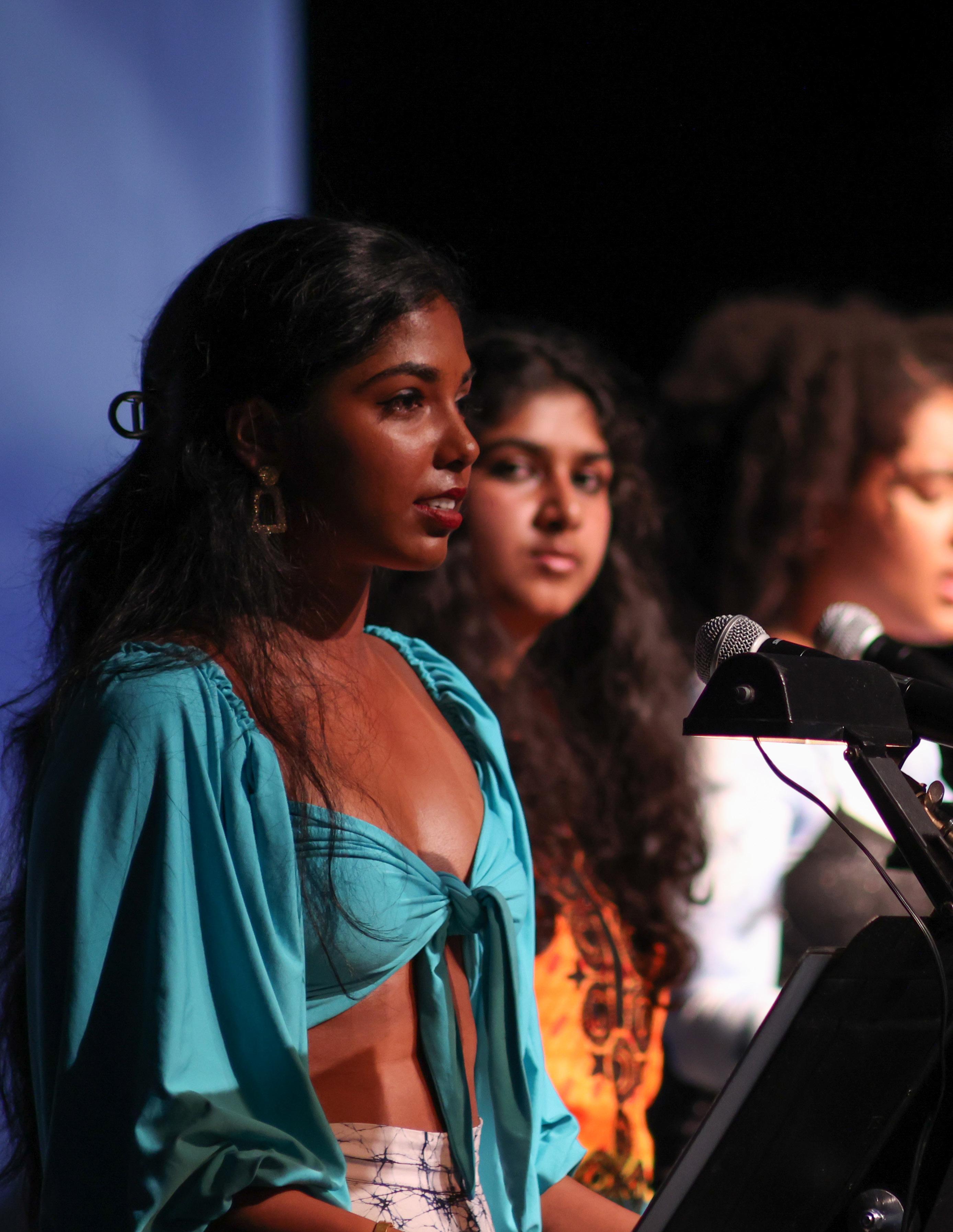
25 e ECo Annual Report
We Hear You—A Climate Archive at e John F. Kennedy Center as part of COAL + ICE. Featuring Ashanee Kottage, Nadia Nazar, Myiah Smith. Wolf Hertztberg
You—A
of COAL +
What’s next for the Earth Commons
We have so much to look forward to in 2022 and 2023. Here are our top priorities in the next year:
• Successfully graduate our rst MS-ESM class and welcome the next generation of MS-ESM leaders for sustainabile business
• Together with the College of Arts & Sciences, successfully develop and propose a new ECo undergraduate degree to begin Fall 23
• Continue to attract the top-tier talent and intellelect through competitive faculty hires
• Design an ECo Ph.D. program
• Host innovative and engaging new signature events that engage Georgetown and our community
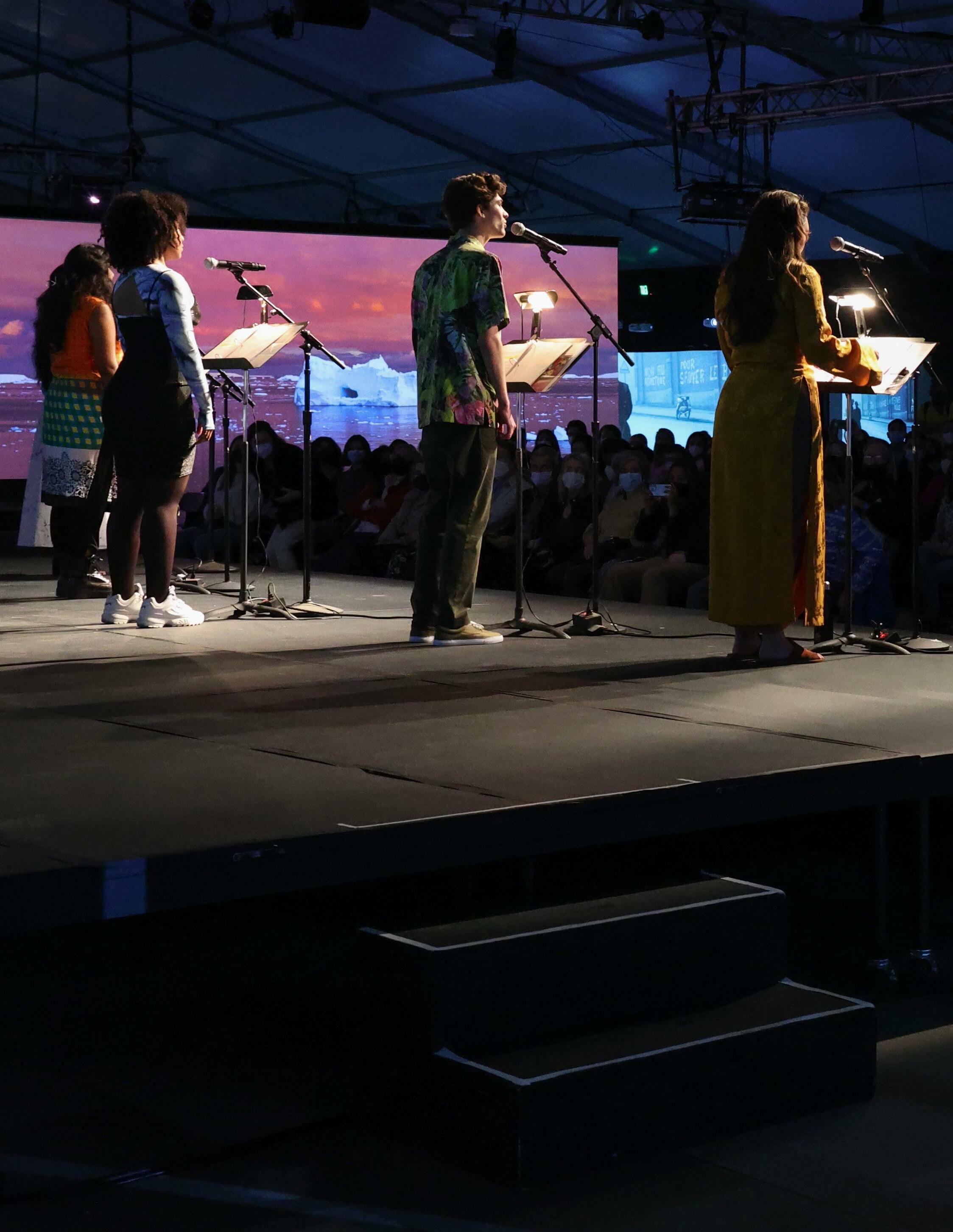 We Hear
Climate Archive at e John F. Kennedy Center as part
ICE. Featuring Ashanee Kottage, Nadia Nazar, Myiah Smith. Wolf Hertztberg
We Hear
Climate Archive at e John F. Kennedy Center as part
ICE. Featuring Ashanee Kottage, Nadia Nazar, Myiah Smith. Wolf Hertztberg
26 e ECo Annual Report
Who we are
Faculty
Peter
Faculty Advisory Committee
William
A liated Faculty
Angela van Doorn Heidi G Elmendorf
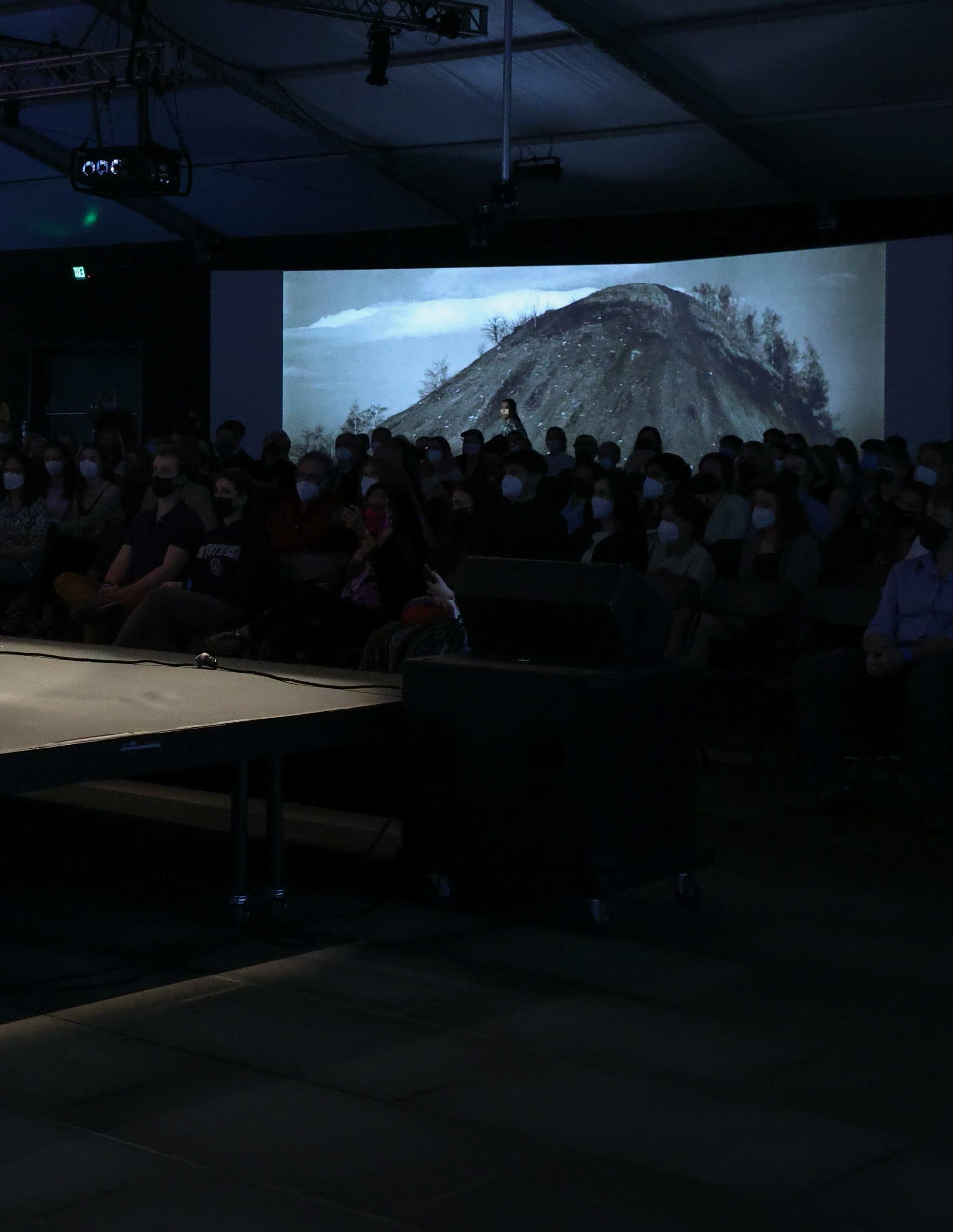
P. Marra Gina Green Brian Gri ths Rebecca Helm Marcus King Megan Lickley Jesse Meiller Maria A. Petrova Sta Justine Bowe Treasa McDonald Michael Tschiderer Hayda Wallen
Buzbee Raphael Calel Emanuela Del Gado Robin Dillon-Merrill
Mark Giordano
Gaël Giraud Rebecca Katz Joanna Lewis John McNeill Janet Mann Nicolette Pireddu
Lutz Sager Je rey Urbach Martha Weiss Meghan Chapple
Vishal Agrawal Randall Amster Ali Arab Peter Armbruster Shweta Bansal Evan Barba Edward Barrows Julia Watts Belser Parrish Bergquist Traci N. Bethea Uwe Brandes Denise E Brennan William Buzbee John Peter Byrne Raphael Calel Ellen Carlin Colin Carlson Francisca Cho Erin M. Cline Sarah Colangelo Ryann Craig Marwa Daoudy Ph.D. Rochelle Davis Dagomar DeGroot Robin Dillon-Merrill Emanuela Del Gado Katharine M. Donato
Sheila R. Foster James Freericks Mark Giordano Gael Pierre Giruad Derek Goldman William Gormley
Bill Hahn Matthew Hamilton Lisa Heinzerling Nathan K. Hensley Toshihiro Higuchi Douglas Howard Sarah Johnson Kaveh Jorabchi Rebecca Katz Edward Van Keuren Karah Knope Jessica Kritz Amrita Kundu Julia Lamm Joanna Lewis Margaret O Little Kai Liu
Rodney D Ludema Kathryn de Luna Ho Yin Mak Janet Mann Mary Beth Martin Meredith McKittrick John McNeill Judith Miller Margaret Myers Mullinix eodore H Moran
Timothy Pauliina Patana Maria Petrova Alexandra Phelan Nicoletta Pireddu Leslie Ries Nicole Rizzuto Paul Roepe Lutz Sager Alexander Sens Lisa Singh Rosemary Sokas Edward Soule Christopher Steck Elizabeth Stephen Sarah Stoll Paul Sullivan Olúfemi O. Táíwò Bob omas Norma Tilden YuYe Tong Je rey Urbach Mark V Vlasic Ed Walsh Michelle C Wang Cynthia Wei Martha Weiss Edith Brown Weiss Caroline Wellbery Lois Wessel Michael Westphal Andria Wisler Ali Whitmer Gina Wimp Diane Yeager Safak Yucel
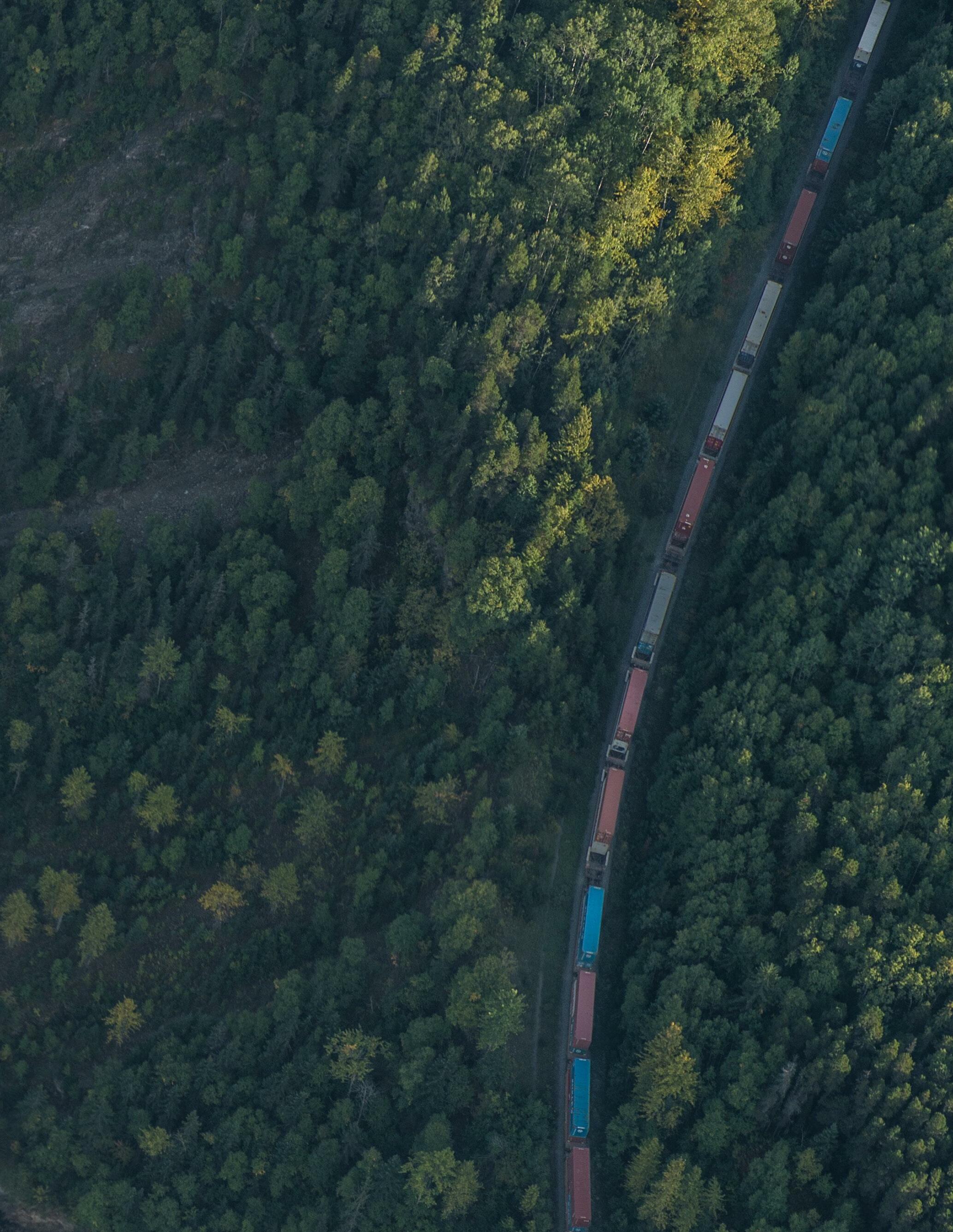
EARTHCOMMONS.GEORGETOWN.EDU
Photo: Tim Romano




 Rodney Stotts demonstrates how to handle the Harris’ Hawk at the Earth Commons’ Voices for the Environment Event in April, 2022.
Rodney Stotts demonstrates how to handle the Harris’ Hawk at the Earth Commons’ Voices for the Environment Event in April, 2022.
 Georgetown’s Earth Commons Institute is a hub for environmental and sustainability innovation, research and education to accelerate action on the most pressing issues of our earth.
Georgetown’s Earth Commons Institute is a hub for environmental and sustainability innovation, research and education to accelerate action on the most pressing issues of our earth.
















 Oswaldo Villena
Oswaldo Villena




 Goldman,
Director of the Laboratory for Global Performance and Politics
and Professor of eater and Performance Studies,
Goldman,
Director of the Laboratory for Global Performance and Politics
and Professor of eater and Performance Studies,













 Right: A Common buckeye moth nectaring on a Lantana ower;
Right: A Common buckeye moth nectaring on a Lantana ower;





 We Hear
Climate Archive at e John F. Kennedy Center as part
ICE. Featuring Ashanee Kottage, Nadia Nazar, Myiah Smith. Wolf Hertztberg
We Hear
Climate Archive at e John F. Kennedy Center as part
ICE. Featuring Ashanee Kottage, Nadia Nazar, Myiah Smith. Wolf Hertztberg

